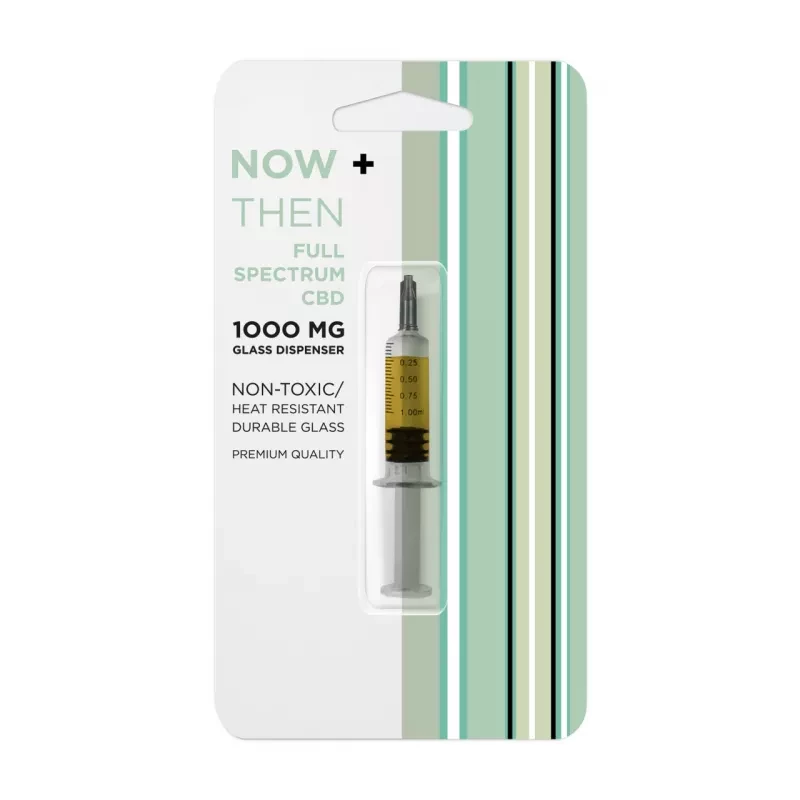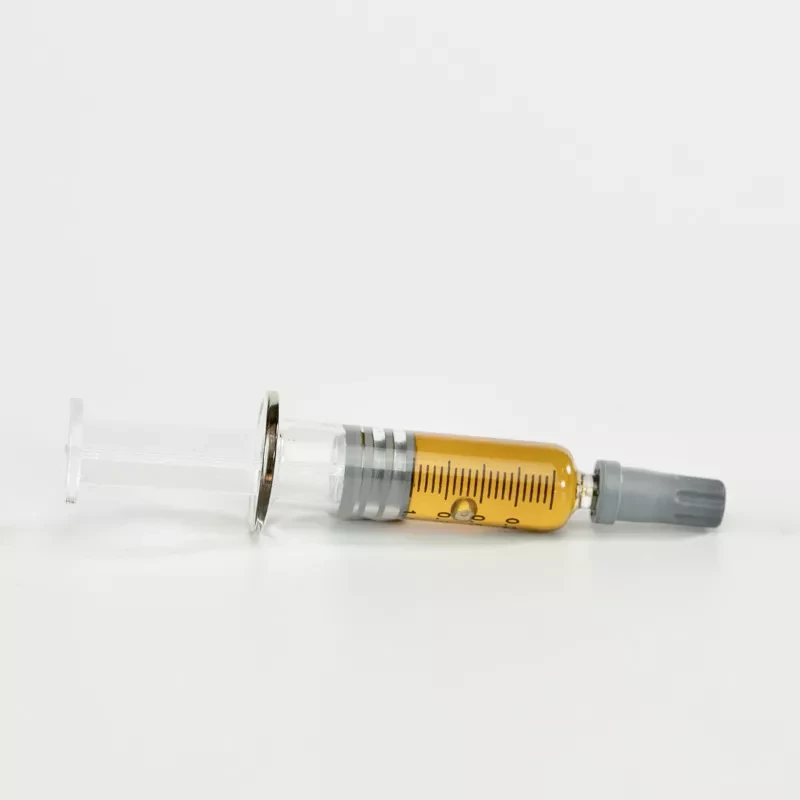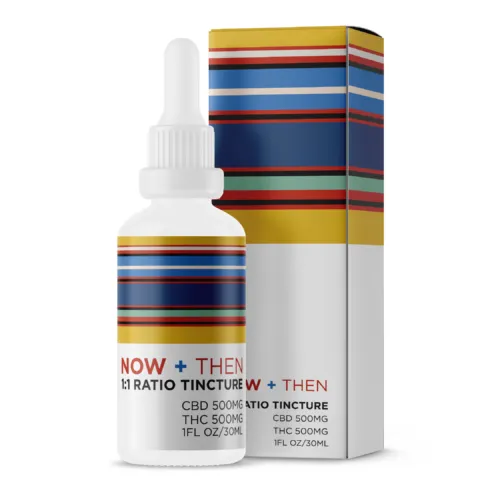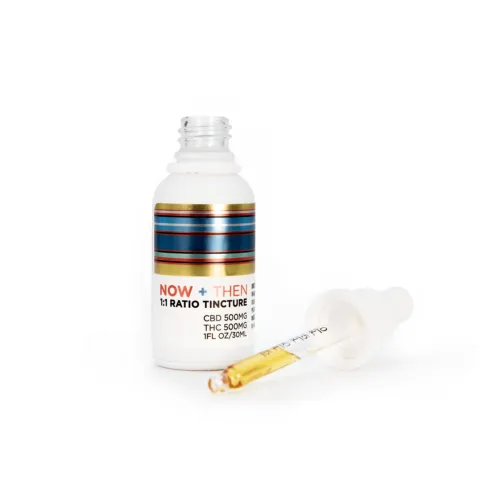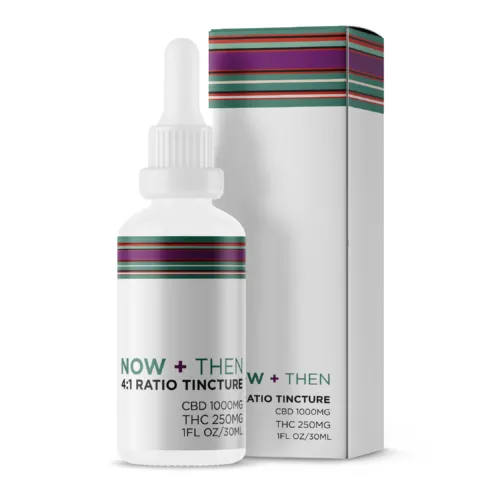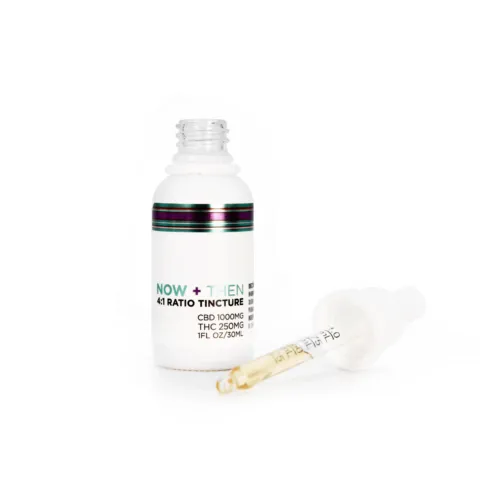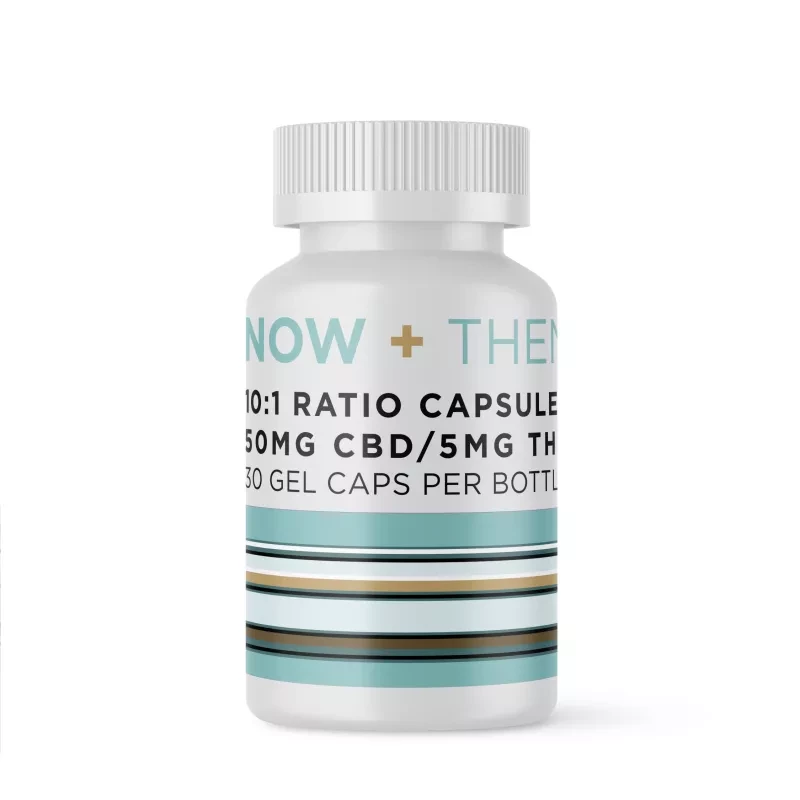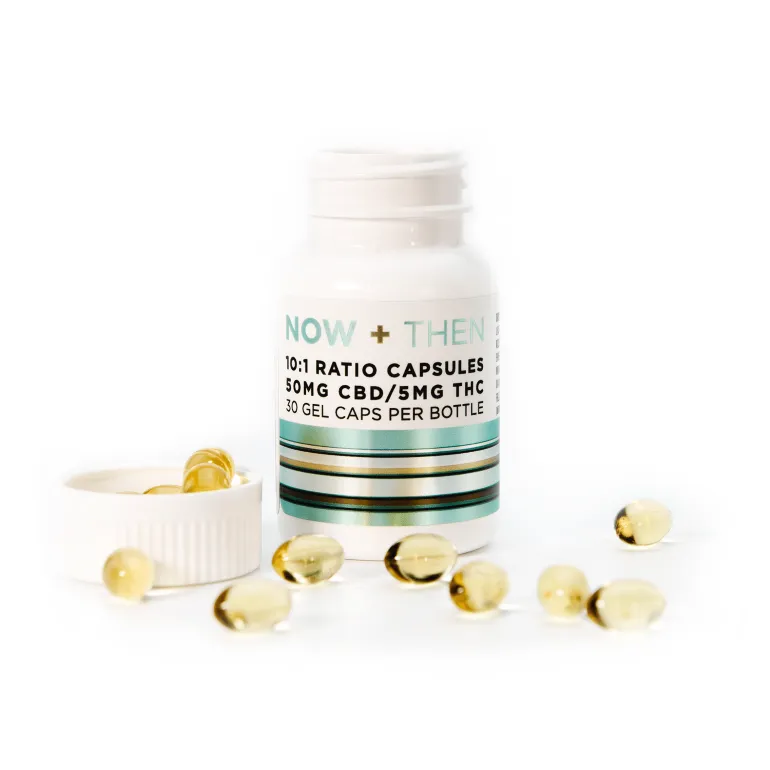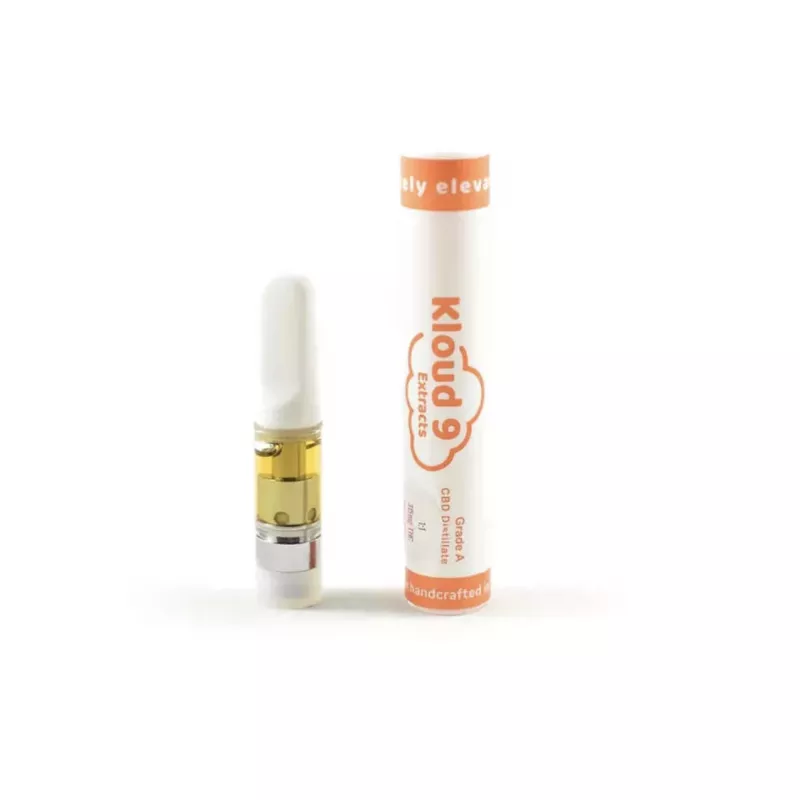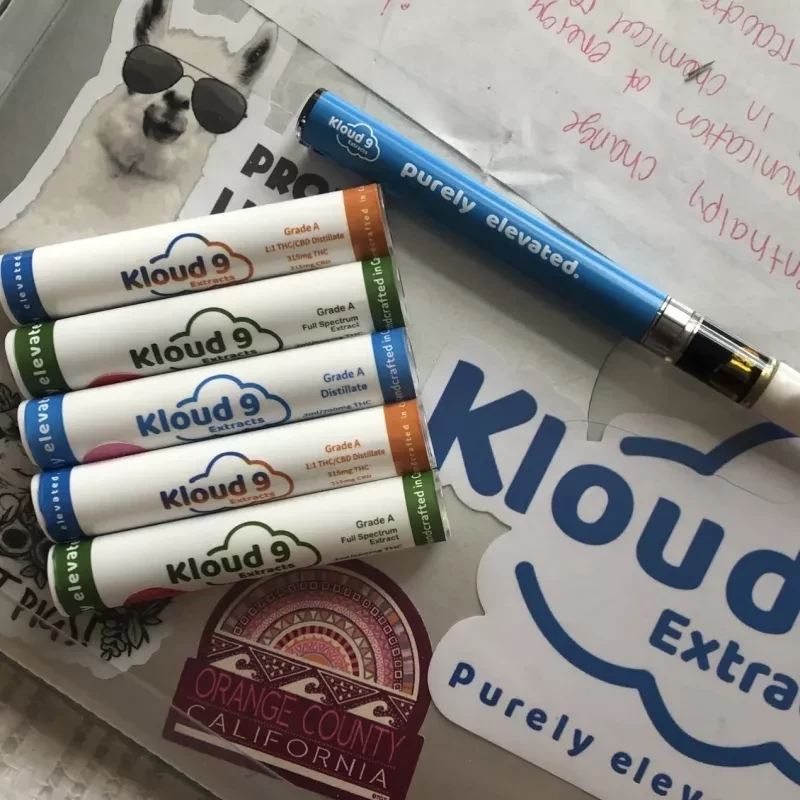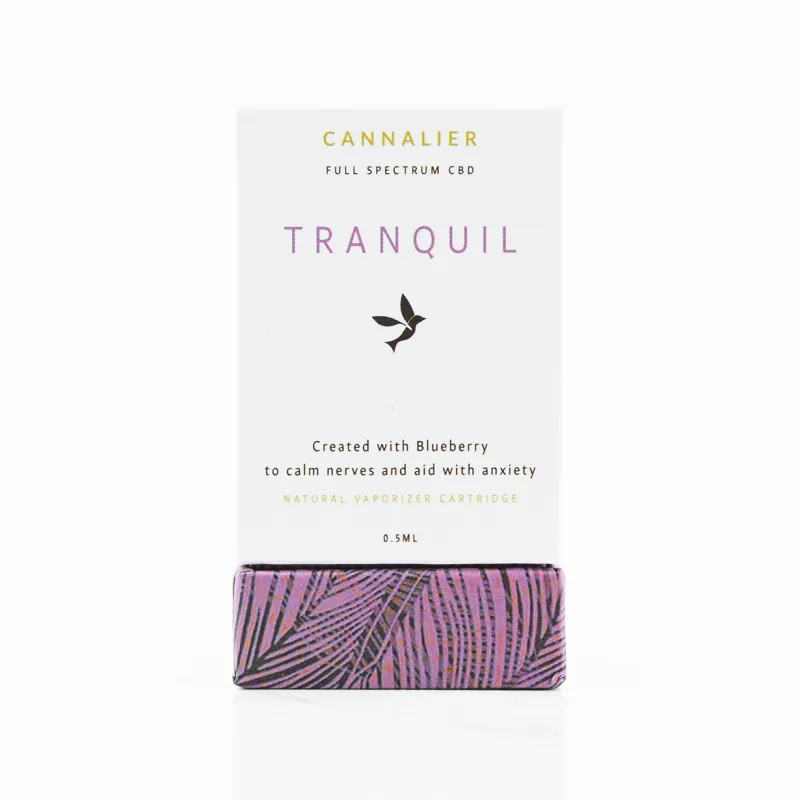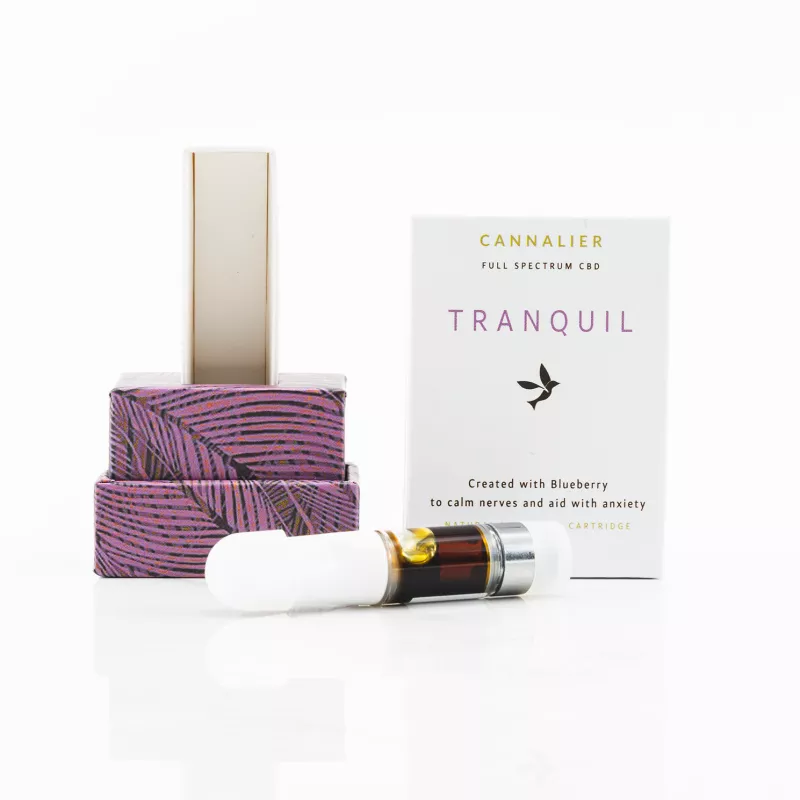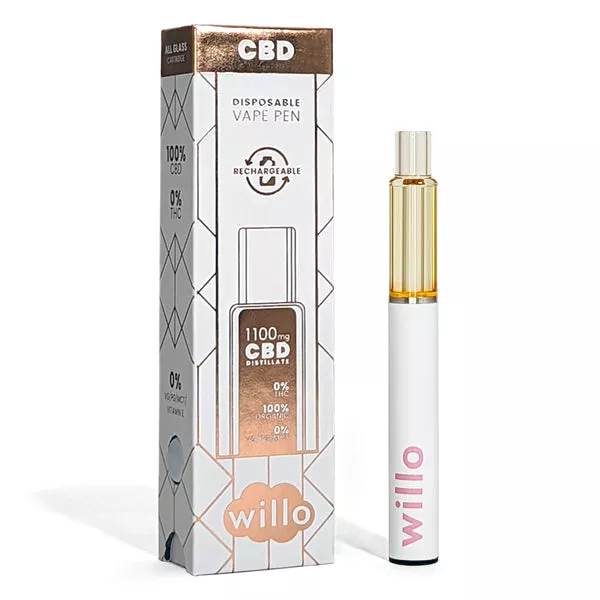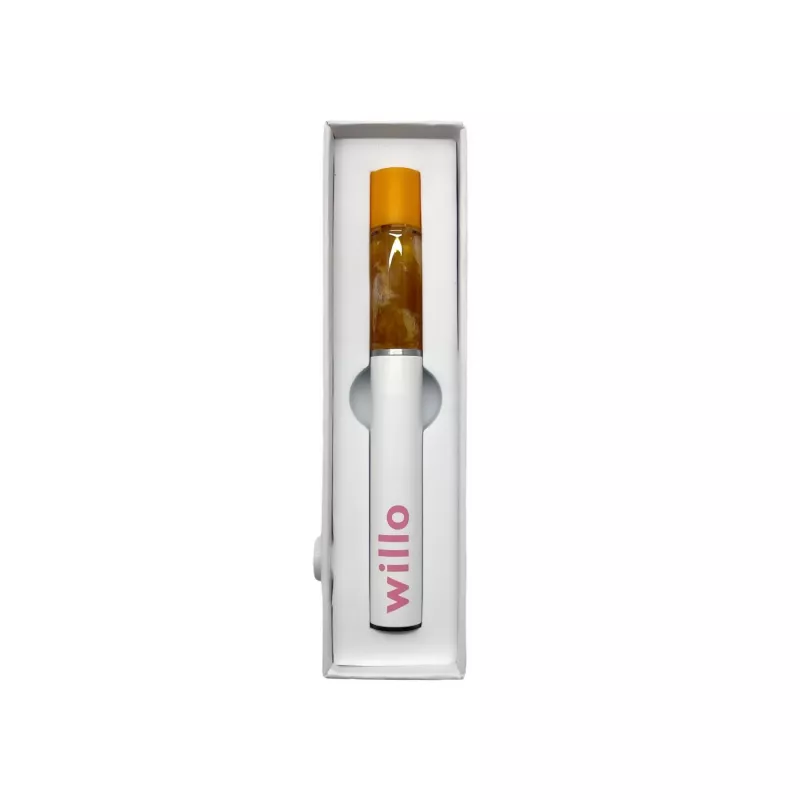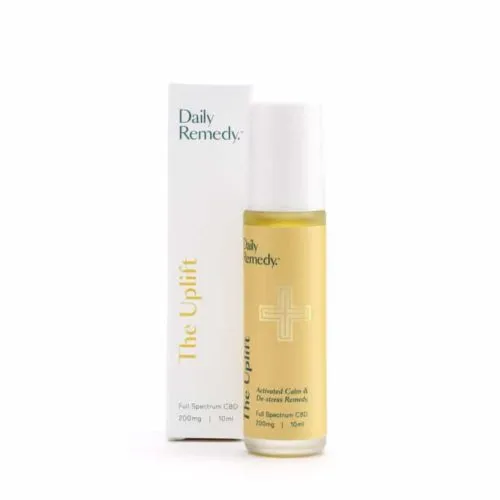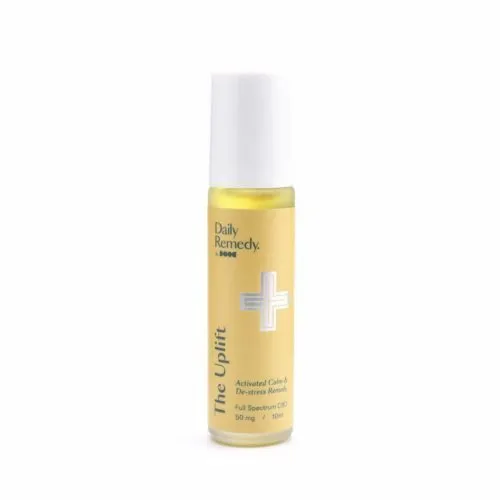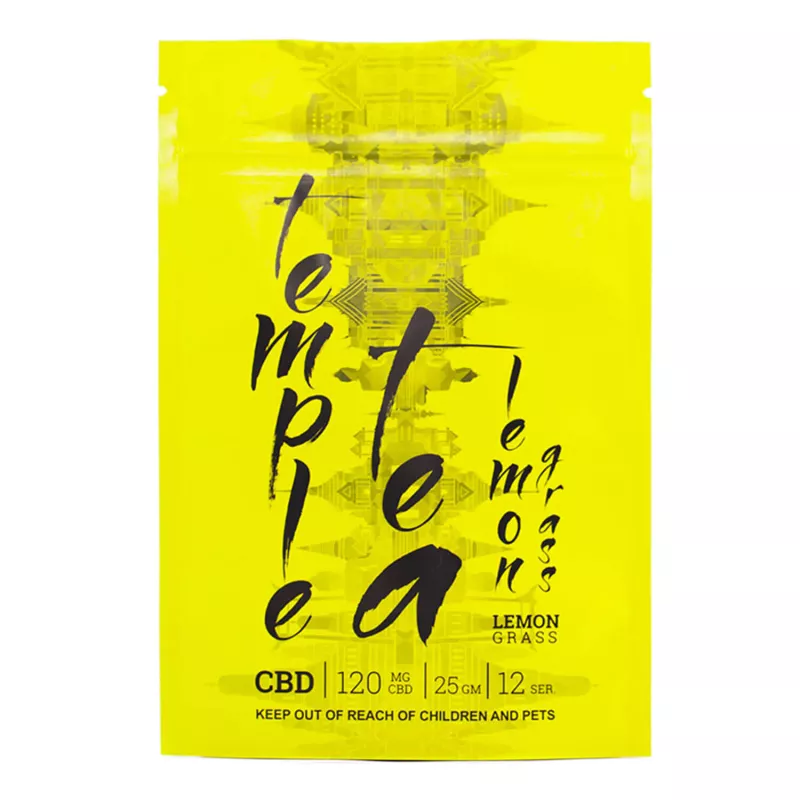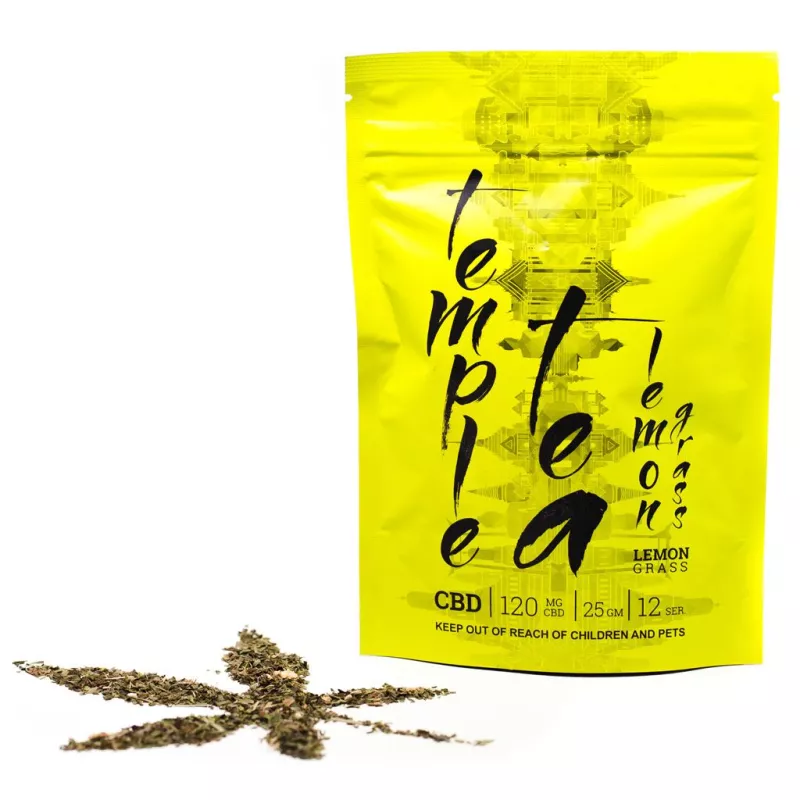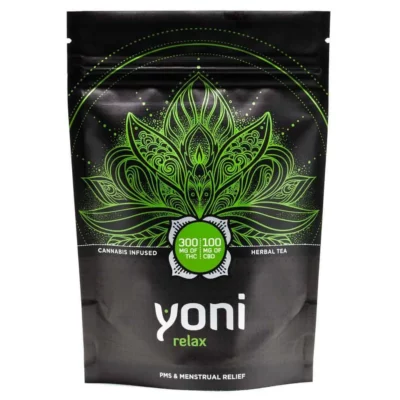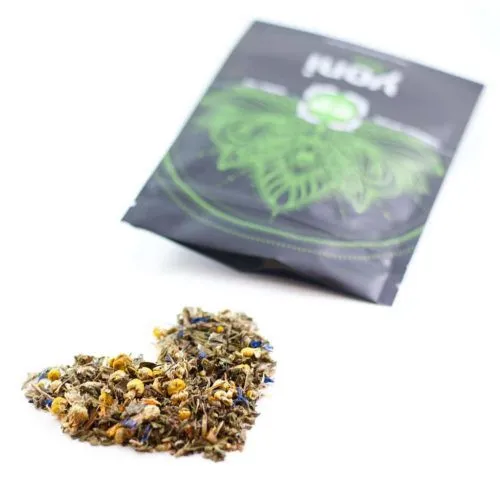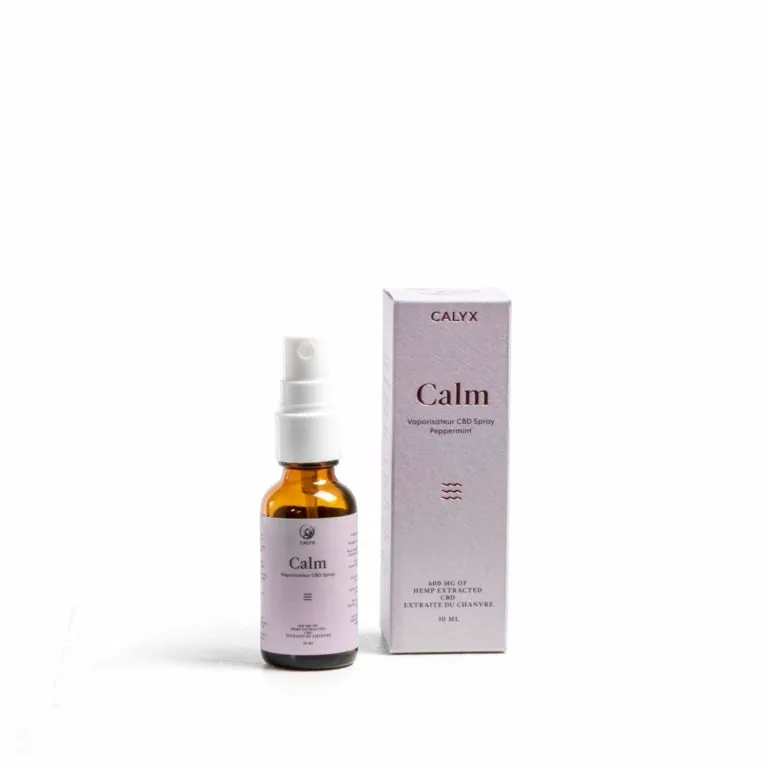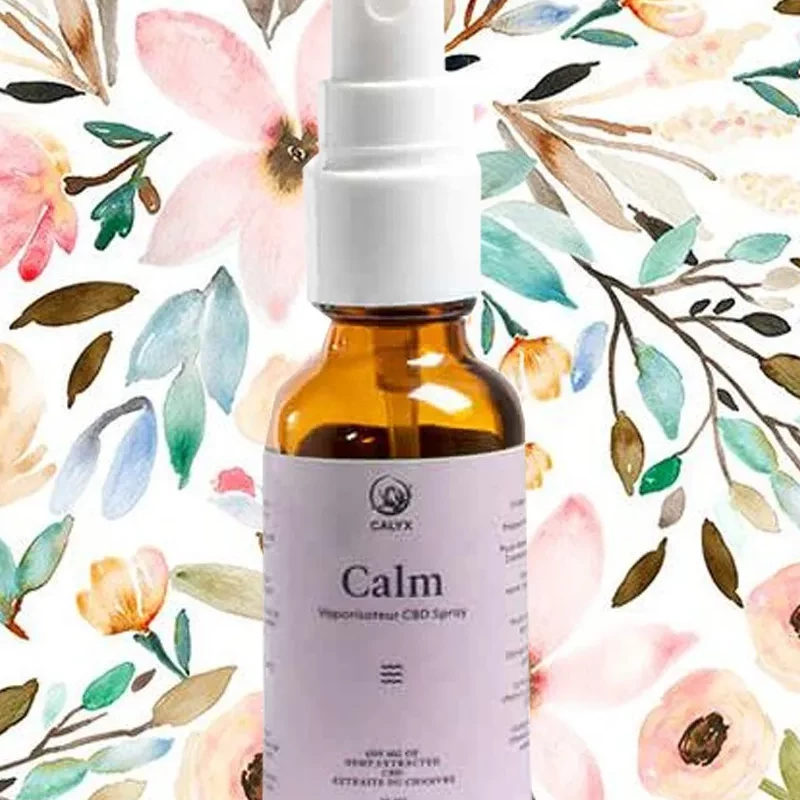Canadian political tension and national anxiety have reached unprecedented levels in recent months. With increased restrictions and vaccine mandates due to the Canada coronavirus pandemic, Canada truckers began protesting in […]
- Shop All
- Type
- (144) THC>
- (75) CBD>
- Need
- Sleep>
- (21) Pain>
- (10) Anxiety>
- (6) Pets>
- (88) Edibles
- (14) CBD Edibles>
- (60) THC Edibles>
- (3) Ratio Edibles>
- (33) Hybrid Edibles>
- (87) Vegan>
- (5) Beverages>
- Strain
- (29) Indica>
- (24) Sativa>
- (47) Hybrid>
- (14) Tinctures
- (5) Anxiety Tinctures>
- (9) CBD Tincture>
- (1) Pain Tincture>
- (4) Ratio Tincture>
- (4) Sleep Tincture>
- (4) THC Tincture>
- (4) Capsules
- (1) CBD Capsules>
- (0) THC Capsules>
- (3) Ratio Capsules>
- Foggers
Shop Anxiety
-
Full Spectrum Cbd Extract Glass Dispenser - Now + Then
THC 10mg | CBD 1000mg$25.00 -
1:1 Ratio Tincture - Now + Then
THC 500mg | CBD 500mg$60.00 -
4:1 Ratio Tincture - Now + Then
THC 250mg | CBD 1000mg$60.00 -
10:1 Ratio Capsules - Now + Then
THC 0mg | CBD 1500mg$65.00 -
Awake Cbd Vape Cartridges - Kloud 9
THC 0mg | CBD 1000mg$33.00 -
Tranquil Cbd Vape Cartridge - Cannalier
THC 0mg | CBD 500mg$32.00 -
Space Candy Cbd Vape Pen - Willo
THC 0mg | CBD 1100mg$45.00 -
Destress Cbd Roller - Daily Remedy
THC 0mg | CBD 200mg$24.00 -
Temple Cbd Infused Lemongrass Tea - Mota
THC 120mg | CBD 0mg$16.99 -
Relax Ratio Tea - Yoni
THC 300mg | CBD 0mg$16.99 -
Calm Cbd Spray - Calyx
THC 0mg | CBD 600mg$54.95
New to CBD?
Benefits of CBD
Types of CBD
Forms of CBD
CBD Dosage
CBD Instructions
CBD & Pets
New to CBD?CBD & AnxietyCBD Anxiety BenefitsCBD Types for AnxietyCBD Forms for AnxietyCBD Anxiety DosageCBD Ideas for AnxietyCBD Anxiety FAQTop 10 CBD / Anxiety related things to knowConsider trying CBD for anxiety if you're looking for a medication that's effective and has few reported negative side effects on the mind or body. The act of addressing anxiety or any other mental health problem for that matter, should certainly not make you feel more anxious.
Anxiety and despair are not the easiest of sentiments to handle. Anxiety is your body's normal response to stress. It's a feeling of dread or foreboding about what's to come. On the first day of school, going to a job interview, or giving a speech, most individuals are terrified. Anxiety is something that everyone goes through at some point in their lives. You may feel anxious when presented with a problem at work, before taking an exam, or before making a critical decision.
Anxiety disorders, on the other hand, are more than just a passing feeling of fear or anxiety. Anxiety disorders cause anxiety that does not go away, and it can worsen with time. Work, academics, and maintaining relationships may all be challenging due to symptoms. Anxiety disorders include, among others, generalized anxiety disorder, panic disorder, and a variety of phobia-related disorders. Enter CBD, in both long and fast acting deliveries.
Finding the proper therapy combination can feel like a never-ending battle, leaving patients disillusioned and depressed. Those suffering from anxiety and depression have a wide range of drugs to choose from. And, while these drugs can be helpful when taken at the correct dosage for months at a time, they come with a laundry list of potential side effects, some of which are rather frightening.
While most herbal remedies are known to have very minor effects, CBD has been proven to be quite helpful in the treatment of anxiety, especially when taken at the recommended dosage and on a regular basis. The best aspect is that there are very few side effects, and those that do occur are relatively minor.
We've got you covered if you're new to CBD. We'll go through how CBD oil can be used to treat mental illnesses including anxiety and depression. We'll also go over essential aspects like how much CBD you should take, as well as a list of the finest CBD oils on the market. Continue reading to learn everything you need to know about CBD in the treatment of anxiety, depression, and other mental health issues.
The top 10 things you may not know about anxiety
10 Anxiety has a genetic basis.
Explore our full range of products formulated specifically with anxiety in mind, from our fast acting CBD vapes to long acting CBD capsules and CBD edibles. Chances are high that should someone in your family suffer from anxiety, you will as well. Enter the nature/nurture debate. Anxiety can be inherited by genes (nature) or behavior (nurture). In 2014, the α-endo mannosidase gene was linked to panic disorder and social anxiety.
The research shows that nervous parents unknowingly feed worry by delaying autonomy in their children or by encouraging the avoidance of circumstances that, for them, generate anxiety. (While these actions are acceptable and motivated by love, they can actually worsen anxiety in children.) This is not to suggest that parents induce or cause anxiety.
It's possible that both genetics and environment play a role — hereditary anxiety vulnerability makes environmental influences easier triggers. Remember that genes do not determine fate nor do they dictate your level of ability to manage any symptoms you may be experiencing. Anxiety can be tamed. Regardless of how or where it comes from, there are CBD treasures sure to help you sail your own ship into calmer waters.
9 Anxiety expands our personal bubble.
There is room for CBD for anxiety, within your personal bubble. Bubble as a word has quite frankly become all too common in today’s vernacular. Bubble this, bubble that, distance this, isolation that. Never before has something so airy, so light, taken on such a negative context. The pandemic guidelines have for the most part encouraged us to add to the space immediately around us. But long before social distancing and masked encounters, we had an invisible zone around us, one with oft-times impenetrable borders.
Anxiety enlarges the self. Everyone has an unseen personal space. The closer we are emotionally, psychologically to someone, the more of our personal space we permit them to enter. This comfort zone, a distance of usually 10-20” away from our face, is increased in the cases of those who experience anxiety. Get too close and we’ll step back.
If we feel your breath while you speak, we may start to tense up. Speak too loudly and our ears may start to ring. Sit without invitation, immediately next to us, and we may embark on a defensive, spontaneous game of musical chairs. Anxiety, in short, causes the need for our personal space bubble to grow. Long acting CBD products such as our Natuur line of tinctures are well-suited for helping us to feel more comfortable in our surroundings.
8 Diet influences anxiety.
What we eat has been shown to influence our levels of anxiety, so it only makes sense that consuming CBD edibles for anxiety, will too have an effect. A study published in the American Journal of Psychiatry found that people who followed a healthier, more ‘traditional’ diet consisting of vegetables, fruit, meat, fish and whole grains tended to be less anxious compared to those who followed a ‘western’ diet of processed or fried foods, refined grains, sugary products and beer or alcohol.
Sugar consumption has been related to a variety of health problems, including obesity, high blood pressure, and anxiety. Sugar has also been related to sadness, mood changes, and basic functional abilities. If you have a sweet tooth, consider a CBD gummy or CBD chocolate. If you are trying to reduce your consumption of sugar, opt for a long acting tincture or capsule instead.
Many people crave sugary meals and drinks because of the immediate energy boost they get from ingesting sugar, but with that rush comes a crash. The energy released is not steady, and the associated peak and valleys are directly linked to increases and decreases in anxiety, triggering fight-or-flight stress responses, which release a cascade of chemicals and hormones, including adrenaline, into your system.
7 Anxious people are more sensitive to changes in facial expressions.
For highly sensitive people, a long acting CBD product may be your best bet. Our slow release products such as Now + Then capsules or Natuur tinctures are ideal for reducing anxiety, when consumed daily, and at low to moderate doses.
People who suffer from anxiety are quicker to detect changes in facial expressions than those who do not, but they are often less accurate. Because of their proclivity to jump to conclusions, anxious people more frequently make blunders while attempting to deduce the emotional states and intentions of others.
Anxiety can lead to paranoia, and the sense of being constantly judged or analyzed, as well as coming quickly to conclusions in human interactions. Understandably, this causes friction and conflict in relationships. If you are prone to anxiety, keep in mind that what you believe others are thinking or feeling may not be correct — your quick perception or anxious state may have fed you a misinterpretation.
6 Anxiety can impair one's sense of smell.
CBD vaping is a delivery mechanism of choice for those who suffer from rapid breathing, or a loss of sense of smell, as a result of an anxiety attack. Our vape section offers our curated selection of disposable and refillable vapes, in a variety of forms and types of CBD, ones designed specifically as anti-anxiety remedies.
According to a study published in the Journal of Neuroscience, people who are anxious have a stronger tendency to identify neutral odors as negative odors. Typically, only the olfactory (smelling) system is activated when processing scents. A person's emotional system becomes entangled with the olfactory processing system when he or she is nervous.
In the short term, this could increase your pulse and breathing rate, allowing your brain to obtain more oxygen. When you are stressed on a frequent basis, your body recovers to normal functioning. However, if you are always apprehensive and agitated, your body will never get the signal to return to normal. As a result, you become more susceptible to viral infections and illnesses. Also, if you suffer from anxiety, your typical vaccines may not work. Check out our CBD vaping systems from premium brands such as Vessel and Jive.
5 Exercise has been shown to reduce anxiety.
Will CBD motivate me to exercise more? Not directly, but as CBD for anxiety has been shown to have lasting effects on your level of calm and focus, when using long acting CBD on the regular, hitting up the gym may soon become an physical outlet that appears more frequently on your radar.
When you are suffering from depression or anxiety, it is common for you to feel like exercising is the last thing you want to do. Exercise, on the other hand, can make a significant effect once you become motivated.
A variety of health conditions, such as high blood pressure, diabetes and arthritis, can be prevented and improved with regular physical activity. In studies on anxiety, researchers discovered that in addition to the psychological and physical benefits of exercise, the latter can also aid to enhance mood and reduce anxiety.
Even if the relationship between anxiety and exercise is not completely understood, working out and engaging in other forms of physical activity can surely help to relieve symptoms of sadness or anxiety and make you feel better. Exercise may also assist to prevent depression and anxiety from returning after you've recovered from their effects. There are several CBD recovery products on the market, including our CBD beverages and our CBD topicals, perfect as a post-workout treat.
The body's fight or flight responses are in full force when it experiences anxiety. When there is nothing to fight or run from, the stress hormones that are surging about have nowhere to go, so they accumulate, causing the physical symptoms of anxiety to manifest themselves. Fighting or fleeing is a normal response, and physical exertion is the natural, conclusive release. Exercise can assist to restore equilibrium to the neurochemicals in the brain that are responsible for the onset of anxiety related symptoms.
4 Anxiety may be the catalyst for entering a state of temporary ‘paralysis’.
Fast acting CBD vapes and nano-CBD with high bioavailability are well suited for consumption prior to high anxiety causing events, such as a performance, or public speaking. According to a study conducted by the Harvard Business School, feeling excited about a performance can help to reduce anxiety about the performance. The trick lies in the re-labeling of our symptoms or emotions. The manner in which we express and identify our emotions has a significant impact on how we are feeling.
Many of the physical characteristics of both anxiety and exhilaration are the same. When you label an emotion as "anxious," you automatically think about all the things that could go wrong. By reinterpreting it as "enthusiastic," we are able to achieve a more optimistic emotional state.
The trick is to stay one step of the anxiety before it goes into overdrive. There are several different ways to consume CBD that could help.
3 Anxiety does have advantages.
There is nothing about us that is either all positive or entirely negative — nothing. While dealing with anxiety can be quite distressing, it can also be really beneficial in terms of shaping the person you have become – your choices, your friendliness, your partnerliness, your sisterliness, your brotherliness, your leadership qualities, and your employee qualities. Have a combination of daily use, long acting CBD products in your arsenal, such as Mota CBD isolate gummies, or Birch + Fog daily use capsules, and a vape in your pocket as a fast acting back up.
Anxiety is not a part of who you are; rather, it is something that happens to you from time to time. It's all part of the experience of being human, and the sometimes beautiful, sometimes messy, sometimes astonishing art that it can be at times.
Anxiety is a health opportunity, if you will, one to inspire you to incorporate best, long-haul health practices such as regular exercise, balanced relationships, non-toxic environments, ample rest, proper diet and as needed, nutritional supplements including a CBD capsule, one formulated to promote calm and balance (or...less anxiety).
2 To some degree, it’s all in your mind.
CBD vapes are fantastic fast acting delivery mechanisms for those who need CBD for anxiety, on the fly. People who suffer from social anxiety frequently believe that they do not present themselves well in social situations. Often, their friends and strangers for that matter, believe them to be quite wonderful, according to recent research.
Perhaps as a result of their sensitivity to the feelings of others, by the time socially anxious people engage, their words have often been carefully studied, chosen to have a high impact - a feat they frequently achieve. Incorporating CBD into your daily routine will lower your general levels of anxiety over time, making prepping for social engagements a little less daunting each time.
If you suffer from social anxiety, keep in mind that when you let others see you, they will come to appreciate you. It's possible that you won't believe this even though you've likely heard this before, plus you’ve now read it here, but regardless, the next time you're out, try to act as if it's true. It will make a difference to you and to the way you are perceived by others. Also, carry a fast acting CBD product on your persons, such as a CBD vape pen. A couple of puffs before heading into a social setting may be just the thing you need.
1 Physical pain runs in the same circles as anxiety.
For those who suffer from pain and anxiety concurrently, a combination of long acting daily use CBD, as well as a fast acting CBD topical or sublingual spray, will target your co-existing conditions at once. Read more through our section on CBD for pain, to better understand how to use CBD for pain.
When it comes to anxiety, there is a solid physical basis for it. Every physical symptom is a direct outcome of the body's fight or flight reaction, which is activated when it senses danger. When the brain detects a threat (actual or imagined – it doesn't matter), it floods the body with a cocktail of neurochemicals to provide the body the physical tools it needs to fight for life or flee.
Chest tightness, nausea, vomiting, muscle tension, heart palpitations, and tummy discomfort are all possible physical manifestations of the condition. Anxiety can be a painful experience. Everyone's bodily response is unique, but the physical manifestations of an anxiety attack are every bit as real as the emotional one in terms of intensity. Consider a CBD program for managing your anxiety that includes a long acting product such as the Birch + Fog Full Spectrum Nighttime drops, with a Birch + Fog heating or cooling pain stick.Top 5 Benefits of using CBD for AnxietyThere are a number of benefits of CBD for use in treating anxiety. According to the National Institute on Drug Abuse (NIDA), CBD has been demonstrated to lower stress in animals such as rats when used for generalised anxiety disorder (GAD). The study subjects exhibited fewer behavioural symptoms of anxiousness. Their physiological anxiety symptoms, such as elevated heart rate, improved as well.
As a result of CBD's growing popularity, a number of researchers have studied it specifically as an anxiety treatment. CBD was found to lower anxiety and discomfort associated with public speaking in patients with social anxiety disorder in a 2011 study. Another 2011 study discovered that CBD alleviated anxiety symptoms in individuals suffering from social anxiety disorder.
For students who suffer from generalised social anxiety, a four-minute discussion with no preparation time can be crippling. Nonetheless, a recent study published in the journal Neuropsychopharmacology discovered that CBD appeared to alleviate uneasiness and cognitive impairment in patients with social anxiety when they were asked to do a simulated public speaking test.
However, a double-blind study discovered that when healthy volunteers were given CBD, their emotional response to unpleasant images or phrases remained similar to that of the placebo group. “If it is a relaxing medicine, it should alter their responses to stimuli,” said Harriet de Wit, co-author of the study and a professor of psychiatry and behavioural neuroscience at the University of Chicago. “However, it did not.”
Many troops return home plagued by combat and post-traumatic stress disorder (PTSD), and frequently shun activities, locations, or people linked with their horrific experiences. The Veterans Affairs Department is funding its first study on CBD in combination with psychotherapy.
“Our most effective treatments aim to disrupt the link between trauma reminders and the fear response,” said Mallory Loflin, an assistant adjunct professor at the University of California, San Diego and the study's primary investigator. “We believe that CBD, at least in animal models, can accelerate that process significantly.” While extensive clinical trials are currently underway, psychologists assert that there is insufficient data to support this as a viable therapy option.
CBD continues to been touted for a variety of health benefits, but the strongest scientific evidence supports its efficacy in treating some of the most debilitating childhood epilepsy syndromes, such as Dravet syndrome and Lennox-Gastaut syndrome (LGS), which typically do not respond to antiseizure medications. CBD has been shown in multiple trials to significantly reduce the frequency of seizures and, in some circumstances, to completely eliminate them.
At the moment, it is not entirely clear how CBD helps anxiety. According to some research, it may function via influencing the brain's serotonin levels. Serotonin is a neurotransmitter found in the human body that plays a role in our mood, sleep patterns, digestion and behaviour.
Increased serotonin levels may aid in the treatment of anxiety, according to research. Certain drugs, for example, antidepressants, work by controlling serotonin levels, and some research indicates that CBD may act similarly to antidepressant and anti-anxiety treatments. Below we highlight the top benefits of CBD for anxiety.
Top five (5) benefits of CBD for anxiety
5 CBD is non-habit forming
While current scientific research suggests that excessive cannabis usage may increase the risk of dependence in some people, CBD does not appear to be addictive in and of itself, according to the evidence.
While active THC had significant physical and psychological effects such as high heart rate and euphoria in a small 2016 study of 31 individuals, CBD had no adverse effects on heart rate, blood pressure, or cognitive performance, according to the findings of the study.
In addition, when it came to self-reported symptoms of intoxication, CBD performed similarly to a placebo. The THC group, on the other hand, claimed to have felt blissful and sedated. Not only is CBD non-addictive, but it may also be beneficial in the treatment of drug addiction. There is evidence that CBD may also be beneficial in the treatment of nicotine and cannabis addiction, helping with withdrawals and addiction related anxieties.
According to a reputable source, CBD may help to reduce the probability of developing cocaine and methamphetamine use disorders in the future. Following a period of detoxification and abstinence, it may also be beneficial in preventing recurrence. CBD has been increasingly used and prescribed as an alternative to habit forming anti-anxiety medications such in the benzodiazepine family.
When you think of marijuana, it's reasonable to be concerned about the possibility of drug dependency, addiction, and psychiatric disease. Unfortunately, marijuana has been portrayed as a threat to human health for many decades now, and this is terrible.
In addition, there has been a misconception of what marijuana actually is. Cannabis, sometimes known as marijuana, is a plant that includes a large number of different kinds of cannabinoids and tannins. Each of them has its own set of characteristics and may be distinguished from the others. CBD and THC are the cannabinoids that are most commonly found in products and medicine, and they are the most widely used.
CBD is derived from two plants: marijuana and hemp, which are used by suppliers. When marijuana is consumed in its entirety, it can be intoxicating, but this is not due to the presence of CBD. Instead, it has more to do with the psychoactive compound THC.
When you extract the CBD from a marijuana plant and isolate it, it does not produce a psychoactive effect. Hemp is a close relative of marijuana, although it contains no psychoactive characteristics of its own. CBD derived from hemp contains no more than.03 percent THC, which is insufficient to have an effect on you. Consider broad spectrum CBD or CBD isolate products if you prefer to use CBD with no traces of THC present.
4 CBD is available in fast acting delivery mechanisms
For those of you who suffer from panic attacks, periodic social anxiety or irritability, fast acting CBD delivery through the use of CBD vapes, CBD topicals and CBD sublingual sprays, such as Vessel Vapes or the Birch + Fog pain sticks, may soon become your saving grace. These products are specifically designed to calm your nerves, help you to ground yourself and to resume focus and steady breathing, and they help to nip anxiety in the bud within minutes of it setting in.
People suffering from various types of anxiety, such as social anxiety disorder (SAD) and post-traumatic stress disorder (PTSD), may find relief with CBD (PTSD). It may also be beneficial in the treatment of anxiety-induced sleeplessness.
In 2011, a study looked into the effects of CBD on people who suffer from seasonal affective disorder (SAD). Participants were given either a 400 milligramme (mg) oral dosage of CBD or a placebo to take orally. Those who received CBD reported a general decrease in their feelings of anxiety. People report feeling relief within 10-15 minutes of having a few puffs of a CBD vape, or applying a CBD topical to their inner wrists or temples. CBD sprays intended for sublingual use are also fast acting, and will certainly help to reduce your anxiety before it becomes crippling.
A number of recent studies have demonstrated that CBD can alleviate symptoms of post-traumatic stress disorder (PTSD), such as nightmares and the reliving of painful memories. The CBD treatment for post-traumatic stress disorder (PTSD) has been investigated in these trials both as a stand-alone treatment and as an addition to standard treatments such as medicine and cognitive behavioural therapy (CBT). A few sprays sublingually before bed has been described as a means of decompression, to set the mind into a more peaceful state before rest.
3 CBD is available in long acting delivery mechanisms
A study conducted in 2011 discovered that CBD improved anxiety symptoms in persons suffering from social anxiety disorder. Several research, including a review published in 2015, revealed evidence that CBD may be beneficial in the treatment of generalised anxiety disorder, panic disorder, social anxiety disorder, obsessional-compulsive disorder, and post-traumatic stress disorder.
CBD capsules, CBD tinctures and CBD edibles for example are often formulated in lower doses, designed for daily use. Consider using these forms of CBD regularly at scheduled intervals, such as every night before bed. There are several awesome products formulated for bedtime relief, such as the Birch + Fog Nighttime tinctures or capsules.
CBD that is long acting will build up in your system over time, and it may take anywhere from two to six weeks for you to begin to notice the effects. Start slow and low with your dosing schedule. You can always increase as needed.
Clients report starting with as low as 15mg per night, with some increasing to up to 600mg daily. Monitor the effects, and as with any supplement, consult with a physician prior to use, particularly if you are already using other medications or should you have any pre-existing conditions.
2 According to the WHO, it is unlikely that you will overdose on CBD
Cannabidiol (CBD) has risen to become one of the most widely available products in the whole cannabis sector, appearing in places as diverse as local coffee shops, pharmacies, and medical marijuana dispensaries, among other places.
However, despite CBD's exploding popularity, there is still a great deal of misunderstanding regarding what CBD is and how it affects humans. We are often asked if it is possible to overdose on CBD. We have reviewed countlessmedical publications, product reviews and have gathered anecdotes from users throughout the Americas. We have not discovered any reports of overdose from CBD.
The phrase "overdose" can refer to a variety of distinct situations. To begin with, some types of drug overdose, such as those involving heroin, cocaine, sleeping pills, or prescription opioids, can be fatal, such as those using prescription opioids.
Additionally, overdosing can simply mean accidently taking two doses instead of one, or when a person's body experiences a negative reaction, which they mistakenly believe was caused by taking too much.
A 2017 review of clinical data published in Cannabis and Cannabinoid Research indicated that CBD is widely considered to be relatively safe, particularly when compared to other pharmaceuticals and prescription medications.In general, the most significant risk you will face if you consume a high amount of CBD is that you will become sleepy, as the cannabinoid has tranquilizing effects when consumed in large quantities.
1 CBD, in and of itself, is all natural
CBD for anxiety is a natural treatment cannabidiol, one that has gained in popularity in our ever-changing environment. It is now utilised to treat a wide range of disorders, including many mild and more chronic ailments, including those as a result of anxiety. CBD, also known as cannabidiol (CBD), is the second most abundant cannabinoid present in the cannabis or marijuana plant, Cannabis sativa, and is the one most often used in the treatment of anxiety attacks and anxiety disorders.
According to a 2016 study, CBD may have antipsychotic benefits in persons suffering from schizophrenia. Aside from that, CBD does not have the terrible side effects associated with some antipsychotic medications.
As with any ‘medication’ or supplement be sure to familiarize yourself with the complete ingredients list and look for product reviews and manufacturer certificates of analysis and their product specific guidelines for use. We pride ourselves in providing you with products that are manufactured using premium, all natural ingredients and flavours wherever possible.Top 4 types of CBD for AnxietyCBD is a chemical component present in the cannabis plant that has many reported therapeutic benefits. CBD, in contrast to delta-9-tetrahydrocannabinol (THC), does not result in a euphoric experience after consumption. Companies that make CBD products utilise a variety of extraction processes to extract the component from the plant, depending on the product. As a result of the various diffusions, there are several different types of CBD produced.
There are four main varieties of CBD, three of which are commonly known, and the fourth of which is just now making its way to the masses. Each contains a different set of compounds and concentrations.
The Food and Drug Administration (FDA)cautions that before taking CBD for any reason, a person should examine the hazards that may be associated with it. People who are pregnant or breastfeeding, for example, should avoid CBD products that contain any traces of THC.
The consumption of CBD that has less than 0.3 percent THC may now be permitted under most federal laws, throughout the Americas. However, the selling and purchasing of CBD may still not be permitted in some regions. Before obtaining CBD, a person should certainly research the legislation in their area.
While CBD in its various forms come with more benefits than risks, facing a criminal record or even incarceration, should be avoided to the best of your ability, even if it means having to forego the use of this miracle compound for the time being.
The FDA does not regulate any other kind of health-related claims. According to the report, numerous CBD products make false or misleading claims regarding the benefits of their products. Before obtaining any form of CBD, people should exercise caution and do their research. The Food and Drug Administration (FDA) has the authority to evaluate health claims and safety issues.
A person should look for products that have been independently tested. Some supplement manufacturers issue a Certificate of Analysis (COA), which details the ingredients in the supplements. Read customer and product reviews and purchase your CBD products from highly rated, reputable online MOM sites or brick and mortar dispensaries. Let’s look at the different forms of CBD currently available to help you to make an informed decision on which may be right for you.
The Top Four (4) types of CBD
4 Full Spectrum CBD for anxiety
Phytochemicals found in nature, such as CBD, trace cannabinoids, terpenes, and essential oils, are present in full-spectrum extracts. CBD is one of the phytochemicals found in nature. The concentration of THC in full-spectrum extracts is also very low - often less than 0.3 percent - as is the case with concentrates (0.3 percent ). While some studies have shown that CBD can be beneficial on its own, others have found that CBD's medical advantages are improved when combined with other cannabis components, according to the research. THC, which should only be present in full-spectrum products, may improve CBD's anti-inflammatory and pain-relieving qualities, thus it is important to use caution when using CBD products.
Since the cannabis plant contains a wide range of active chemicals, the health benefits of each individual cannabinoid are regarded to be amplified by the combined effects of the entire spectrum of active chemicals. An example of this phenomenon is the so-called "entourage effect," which we will examine in more detail later.
So far, the Food and Drug Administration (FDA) of the United States has approved a cannabis-derived full-spectrum CBD therapy, which is a prescription treatment intended to treat some of the most severe types of epilepsy and other seizure-causing disorders. Full- spectrum CBD has been effective in targeting the symptoms of anxiety including the jitters, and accelerated breathing.
While there is growing, solid scientific evidence pointing to other specific health conditions that full-spectrum CBD may be able to help treat, research suggests that it may have the potential to treat GAD, panic attacks, social anxiety, obsessive-compulsive disorder, and post-traumatic stress disorder in some people, in addition to acting as an anti-inflammatory, in some studies.
3 Broad Spectrum CBD for anxiety
Broad-spectrum CBD does not contain THC, which is completely removed during the initial extraction. Instead, it contains cannabidiol, cannabichromene, terpenes, and all other compounds found in the cannabis plant. Because they include many cannabinoids, broad-spectrum extracts also produce the "entourage effect," but without the psychoactive effects of THC.
Because broad-spectrum oil has all of the beneficial compounds found in the full-spectrum counterpart, it has the potential to have a large positive impact on neurologic disorders and to aid in the relaxation of the nervous system - a bold concept when it comes to seeking relief from anxiety. When a dozen different cannabinoids work together in synergy, the medical properties of the plant are enhanced to their full potential. THC is not included in these broad-spectrum CBD products, and CBD in its different forms is uniquely beneficial for a variety of ailments. In rare cases, items may, nevertheless, contain trace amounts of contaminants.
A combination between full spectrum CBD and CBD isolate, to put it simply, is what broad-spectrum hemp oil is all about. THC is not included in this category because it does not belong to the cannabinoids family. Broad-spectrum CBD has been demonstrated to have health effects that are comparable to those of full-spectrum CBD, and it is frequently used as an antibacterial, anti-seizure, and anti-inflammatory medication.
THC is not included in the majority of CBD products with a broad variety of effects. In rare cases, items may, nevertheless, contain trace amounts of contaminants. People who want to avoid THC for a variety of reasons, including its euphoric effects, may prefer to use broad spectrum CBD. This is because even small amounts of full spectrum CBD can show up on a drug test, not that your dog will be subjected to a drug test anytime soon, either.
2 CBD Isolate for anxiety
CBD isolate is the purest form of the substance, and it is produced by extracting it from its natural environment and separating it from all of its other constituents. One of the advantages of CBD isolation over other types of CBD is that it contains the highest concentration of CBD per serving. Isolates are typically 99 percent pure, containing approximately 990 milligrammes of CBD per gramme of isolate powder, according to industry standards.
CBD isolation, in contrast to full-spectrum CBD products, does not contain any THC, which is the psychoactive component of cannabis. Most other CBD products have at least a trace amount of THC in their formulation. Because of the widespread availability of cannabidiol (CBD) products, there is now an enticing alternative for those seeking to benefit from CBD's potential medicinal benefits while avoiding the psychoactive effects of THC. In spite of the fact that CBD isolates are one of the most distinctive and adaptable forms of CBD available on the market, they do not receive the same level of attention as other forms of CBD or CBD-infused goods.
As you might have guessed from the name, these products have been processed to extract only the CBD molecule from cannabis plants, with no other cannabinoids or terpenes present. Because CBD's potency is often higher than that of full spectrum cannabis, it is recommended that you start with a low dose until you become comfortable with the effects and begin to see the advantages.
It should be noted that such products do not benefit from the entourage effect – instead, they benefit from the benefits of cannabidiol itself. As a result, they are less expensive and in lower demand than full-spectrum or broad-spectrum CBD. CBD isolates are a very good place to start for those looking for remedies for general anxiety disorder and other anxiety related symptoms (or causes- such as sleeplessness or tension).
CBD isolate, in not containing THC, also allows for you to explore the benefits without the fear or anxiety of getting high, or feeling as though you are not in control of your immediate environment. Coming from someone who used to use THC regularly, and who is now quite weary when it comes to products with even trace amounts of THC, CBD isolate has been a game changer when coming to taming my anxieties.
1 Nano CBD for anxiety
Nanotechnology is a relative newcomer to the scene, at least in terms of its application to the cannabis industry, it is poised to become one of the most talked-about in the world of CBD for anxiety. Let us first take a closer look at what nanotechnology is all about in order to gain a better understanding of how it pertains to CBD and mental health.
The term "nanotechnology" refers to a variety of processes, each of which describes a continual reduction in particle size: macroemulsions, microemulsions, and nanoemulsions are examples of such processes. The use of macro and microemulsions in the food, chemical, and pesticide sectors is frequent, but the use of nanoemulsions is a relatively new phenomenon, especially in the food industry (particle quantification size from 20 to 200 nm).
These nanoemulsions are gaining popularity in the cannabis, pharmaceutical, and cosmetic industries, and they are particularly appealing to the cannabis industry because of their positive influence on bioavailability as well as their inherently fast-acting effects. This is highly relevant when discussing panic attacks and crippling anxiety.
A CBD product with maximized bioavailability that is also fast-acting? Jackpot! We have finally found what we have been looking for, though sadly after having too often travelled along the road of highly addictive benzodiazepines. Eeeew! Get those devil pills away from us. Nano CBD has landed.
It is becoming increasingly fashionable to use cannabis products that have been infused with nanoemulsion. These edibles have various advantages over typical edible cannabis products. They are also more trustworthy in terms of amount and dosing schedules because they are activated faster, have a higher efficacy rate, and produce more consistent outcomes than previous generations.Aside from boosting the rate of cannabis absorption, it has been demonstrated that nanoemulsions can also minimise the length of time required for absorption to occur.
Researchers discovered that cannabis products infused with CBD nanoemulsion reached maximal blood cannabinoid concentrations three times (3x) faster than those that did not. This was discovered in one trial. Several studies go even farther, claiming that the rate of activation is five to eight times (5x - 8x) faster. It is possible that nano CBD will be your best bet if you are specifically seeking a fast-acting, anti-anxiety solution with the greatest possible bioavailability.
The cannabis sector has placed a strong emphasis on nanotechnology, because in the world of cannabinoids, this technology is able to address two issues at the same time: bioavailability and solubility in water. Cannabinoids are naturally hydrophobic, which means that they are not readily absorbed by the human body as they should be.
Nanoemulsion lowers particle size while simultaneously improving absorption and water solubility, alleviating this problem. Nano CBD beverages make for a delightful and tasty way to consume your CBD for anxiety, with available flavours such as ginger ale, green tea, lemon vanilla and more. Swap out your party cocktail for a beverage that will tame, rather than amplify your social anxiety. Hello Calm!The Top 4 Forms of CBD for AnxietyCBD could not have entered the mainstream at a better time. When did anxiety start to become less of an exception and more of a standard in society? These days, almost everyone is coping with anxiety of varied degrees to some extent. Even people who had never before experienced this uncomfortable sensation of fear, dread, and uneasiness before the pandemic may now be experiencing symptoms of anxiety disorders on a daily basis: sweaty palms, racing heart, a sense of impending doom, and even panic attacks, to name a few.
Anxiety is a typical reaction to randomized types of danger. The presence of "irrational" fear and worry that interferes with daily activities, on the other hand, may suggest an anxiety disorder of a greater scale.
Not sure where you sit on the spectrum? According to the CDC, nearly one-third (⅓) of adults experienced symptoms of an anxiety disorder in June 2020, up from 8 percent (8%) in the second quarter of 2019.
Certain groups were particularly hard hit, including 18- to 24-year-olds, Blacks, Latinos, essential workers, unpaid caregivers for adults, and people who were already receiving treatment for anxiety, depression, or post-traumatic stress disorder.
Needless to say, you are far from alone if you suffer from anxiety related symptoms. We get it. At Birch + Fog we are here to help. In this section we will look into the many forms of CBD we have identified specifically for use in addressing anxiety. Have a read through the previous section on the types of CBD, as it is up to you on whether you are more interested in making use of the entourage effect, avoiding THC altogether, or are seeking the latest and greatest in product development- opting instead for a CBD nanoemulsion such as the Now + Then nano beverages currently available in four delicious blends.
Once you have more knowledge on the different types of CBD, read through our list below, as each of these various available types can be delivered to you in unique forms ranging from edibles to tinctures to vape pens and bath bombs, all crafted to help you battle your anxiety.
Top five (5) forms of CBD for anxiety
5 CBD Topicals
CBD and its cohort THC, are both present in equal levels in 1:1 topicals. CBD's therapeutic and reparative properties have been thoroughly researched, with the most recent findings focusing on the treatment of anxiety, sleeplessness, inflammation, and pain, among other conditions. Activating the body's endocannabinoid system, these pain sticks and roll-ons connect to the cell receptors at the tissue level to alleviate the agonising, paralyzing sensations associated with anxiety disorders and panic attacks.
When it comes to the various chemical components or cannabinoids found in cannabis, THC is the second most talked-about. THC, like CBD, is known for its psychoactive effects, but it also possesses a number of pain-relieving qualities that are generally overlooked. According to research, combining the two can provide additional therapeutic effects. The entourage effect is a word used to describe this synergistic interaction of cannabinoids, which is expected to generate better results than eating CBD or THC alone.
Transdermal CBD pain sticks, which are used as ‘calming sticks’, (a healthier replacement to cigarettes for those who smoke) are administered locally and directly to the skin. They can be used to target a variety of regions on the body quickly and effectively. The important things to consider here is that they are fairly fast acting- a huge plus when you are having an anxiety attack.
According to numerous stories from people who have tried such products, the results are amazingly quick and startlingly powerful as well. It couldn't have taken me more than 15 minutes to calm the beep down after applying a roll-on to my inner wrists, and taking a few deep, ‘6 counts in 6 counts out’ breaths.
I can't be completely accurate with my timeline of recovery because, well, they worked so darn impressively, that I was quickly out of paying attention to the minutes, which for me during a panic attack, feel like hours. In effect, I calmed down so quickly that the event was reduced to an afterthought.
A popular topical treatment, pain sticks from Birch + Fog are available in both hot and cooling varieties, making them one of the most popular solutions. Don't be deceived by the one-to-one ratios.. In the case of applying these pain sticks to your skin, the psychoactive effects (in the sense of a "high" feeling) are virtually non-existent. You won’t get unintentionally high from a wee bit of THC on your temples or wrists, and certainly not enough so to amplify your anxiety attack, rather than calm you down.
Presented in two distinct flavours, Deep Heat Spicy Mint and Ice Cool Peppermint, this proprietary mixture is a powerful analgesic therapy that can be used topically. These hero pain relief sticks, which are infused with essential oils and antioxidants, also provide relief from deep aches and muscle soreness- all too common side effects of anxiety. If you tense up the way many do, having on hand a calming agent that also soothes your muscles is simply genius.
Carry a CBD roller or paint-stick with you, as diligently as you don’t leave home without your phone. The application of this oil topically to the inner wrists, temples, bottoms of your feet, and back of your neck delivers immediate comfort and will have you coming back to earth within minutes.
4 CBD Vapes
CBD may be beneficial for specific types of anxiety, according to several studies. CBD may also be beneficial in people who have certain other psychiatric and mental health problems.
CBD vapes are another fast-acting CBD product that is widely available for individuals who suffer from anxiety. A common treatment for anxiety is the use of heavy hitting pharmaceuticals such as Ativan, which were widely available (and potentially over-prescribed) prior to the introduction of CBD as a remedy to aid in the management and reduction of anxiety.
Vaping CBD oil for anxiety has grown increasingly popular in recent years, as evidenced by scientific and anecdotal data. A few puffs before setting out for the day, or preventatively, at the onset of a panic attack, is proven to be a quick and effective way to wind down, to ground yourself, gain control of your breathing, your tremors and your real or imagined fears. Ensuring that you are less anxious, more calm and generally smoother sailing, CBD vapes are a key tool to have on you should you be one of the many who suffer from anxiety.
Currently available prescription treatments for anxiety are either ineffective for the long term, or associated with unwanted and often severe adverse effects, including addiction. Taking pharmaceutical anti-anxiety drugs on the regular, for example, may result in decreased levels of motivation, the inability to pull yourself together for work and social commitments, irregular sleeping schedules, rapidly increased tolerance levels that lead quickly to addictive behaviours, and sometimes even a zombie-like state of mind.
These heavy duty benzos are no fun, and in the long term, could end up doing more damage than good. Due to unfortunate circumstances, the outcome over overuse, may even be fatal in some cases. There are no reports of overdose from CBD, and the list of benefits of using CBD for anxiety continues to grow.
According to current research, CBD has no known substantial detrimental effects in the long run, despite the fact that its short-term effects have not been well-documented enough to rule out significant hazards.
It's possible that CBD vaping will be a good place for you to start your own investigation into the potential advantages of CBD for your anxiety. When you are new to the idea of using cannabis, vaping is both cost-effective and fast-acting.
The fact that CBD has a high bioavailability is not the only advantage of vaping it. CBD vape carts do not require a prescription and may be purchased without one, either online or through standing dispensaries. Vapes, in general, have no discernible odour, making them an excellent companion wherever your day may take you.
The use of CBD oil vapes produces powerful results while requiring less material than other consumption methods. Vaping CBD oil provides the most effective and fastest-acting relief while using the least amount of product. It also enters the circulation more quickly than any other method of consumption, so you'll get rapid relief when you vape this oil.
With CBD oil vaping, you can pretty much cure pain and anxiety on the spot, or gradually over longer periods of time. CBD also helps to calm the body, which makes it easier for you to get a good night’s rest - something that is critical to long term anxiety management.
Temperature and time are also important aspects for achieving the optimal vaping experience.
The effects of CBD are enhanced when you use a vaporizer at a temperature of 400°F or greater, as opposed to lower temps. This is due to the fact that the heat stimulates the cannabinoids, which are vital for relaxing. Because CBD is rapidly absorbed through vaping, a vape session at the onset of a panic attack is recommended, or used more regularly as a general anxiety preventative.
3 CBD Capsules
The greatest CBD Capsules include the same high-quality CBD extracts that are found in other forms of CBD; the difference is that, instead of being a tincture, vape or beverage, it is now available in a gel-cap form that is easy to ingest on its own or to swallow with food or other liquids.
The delivery mechanism you choose may be influenced in part by whether you are seeking a longer term, slower acting anxiety preventative, such as a CBD capsules designed for daily use, whether a fast acting vape is more your speed, or perhaps even a combination of both, should for example, you experience generalized anxiety as well a periodic panic attacks.
It is possible to dose accurately using Full Spectrum CBD Oil or CBD isolate capsules and soft gels. These products are great for those who do not love the taste of oils or sublingual tinctures, as well as for those who desire a higher concentration of CBD for daily use, than is currently available in many other comparable CBD products. Gel caps are as easy to add into your dietary routine as daily intake Vitamin C tablets.
Every person is distinct and individual. It is also important to note that there are CBD capsules for available that are made from each of the four (4) types of CBD that are currently available - full spectrum, broad-spectrum, isolate, and nano - so it is important to educate yourself on the differences between these types of CBD as well as the entourage effect and bioavailability in order to help you choose the best CBD capsules for your needs. And, as always, make sure to follow the dosing schedule and keep an eye on the results.
2 CBD Tinctures
Typically prepared from high-CBD hemp strains and 60 to 70% alcohol, CBD tinctures are mostly used to aid those who are suffering from anxiety or chronic pain. The use of tinctures is advantageous because they have a long shelf life and are quickly absorbed when administered under the tongue.
Tinctures are made by steeping cannabis flowers or isolates in high-proof grain alcohol for an extended period of time, followed by low heat for an extended period of time. This permits the active chemicals in cannabis to infuse into the neutral spirit, which is subsequently boiled to remove the majority of the active components.
This produces a highly concentrated liquid that provides the effects of cannabis molecules without the need for smoking or any other kind of combustion. In order to improve the flavour of a tincture in the rising consumer market, producers will frequently add carrier oils and other complementing components, such as orange oil.
A study conducted in 2011 discovered that CBD improved anxiety symptoms in persons suffering from social anxiety disorder. Several research studies, including a review published in 2015, revealed evidence that CBD may be beneficial in the treatment of generalised anxiety disorder, panic disorder, social anxiety disorder, obsessional-compulsive disorder, and post-traumatic stress disorder (PTSD).
CBD tinctures have maximized bioavailability and are fast acting, making these sublingual CBD sprays out to be miracle workers in a bottle, ones that belong in the medicine cabinet of anyone who suffers from panic attacks or generalize anxiety.
1 CBD Edibles
The endocannabinoid system is the primary brain route that CBD modulates, and it is this system that may be responsible for the effects on mood and anxiety. It is suggested that CBD has a positive effect on this metabolic pathway.
Known as endocannabinoids, the endocannabinoid system (ECS) is comprised of cannabinoid-like substances produced by the body that bind to cell surface receptors, as well as the enzymes responsible for the production and breakdown of endocannabinoids in the body. Things that are good for you, such as getting adequate sleep and exercising, assist to keep the ECS in good working order.
In contrast, inadequate sleep, unrelieved stress and anxiety, and other factors can impair the ECS resulting in less than helpful stress management and anxiety coping mechanisms. People with various levels of activation in their endocannabinoid system may be more or less resilient to stress, and their capacity to recover from the stress of psychological trauma may differ.
The difficulty in determining how much of this is occurring in humans and what amount of CBD is required to achieve this is a difficult task. Consuming CBD edibles on a regular basis, is an easy way to monitor both the potency, the frequency of use, and the results.
CBD edibles include infused goods such as biscuits and brownies, gummies, chocolates, har candies and more. They are often packaged in doses that can be easily broken down into smaller pieces, such as an 8-piece chocolate bar, with 80 mg total CBD, thus containing 10 mg of CBD per piece of chocolate.
CBD edibles are great for long acting purposes to contribute to a reduction in anxiety over time.
They are not, however, fast acting, as they must pass through the digestive system to be absorbed, taking some time to ‘kick-in’. Too, they have a lower bioavailability than other forms of CBD, so may be best used over the long term, on a regular basis and rather than turned to in times of a panic attack, or serious anxiety fueled episode.CBD for Anxiety Dosage & RecommendationsAnxiety is one of the most frequent types of mental health issues, impacting almost 20 percent 20% of the population. There is evidence to suggest that CBD may be effective in treating acute symptoms of a variety of anxiety-related illnesses, such as generalized anxiety disorder, obsessive-compulsive disorder, and social anxiety disorder, according to the research.
It can be daunting to deal with anxiety and depression; yet, these diseases can have devastating consequences if they are not addressed promptly and effectively. In this case, the good news is that a high dose of CBD is not required to effectively control the symptoms of these illnesses. In reality, most people only use a small amount of medication to keep anxiety at bay.
When consuming CBD, each individual will have a different experience. Its effects vary from person to person due to the fact that there are numerous elements that influence how efficiently CBD acts within the body. Some of these considerations are the severity of the condition as well as the individual's internal chemical balance, among others.
Hemp-derived CBD is available in a variety of various forms such as lotions, pills, oils, and gummies, among others. In terms of their contents as well as dosages, they can be extremely variable, and there is little data available on what amounts may be effective or safe for treating specific ailments.
Cannabidiol (CBD) is the cannabinoid found in marijuana that is second in abundance after THC. CBD, in contrast to tetrahydrocannabinol (THC), does not produce intoxicating effects. In recent years, there has been a significant increase in interest in the use of CBD for medicinal purposes.
CBD is believed to have a variety of beneficial impacts on both physical and mental health. As a result, it has become more popular as a treatment for a variety of conditions ranging from anxiety to sleep difficulties. CBD may be beneficial for you, but it is crucial to evaluate its possible advantages, negative effects, and existing information on safe dosages before deciding whether CBD is good for you.
The Top Five (5) Things to Consider With CBD Dosing for Anxiety
5 The various forms of CBD available - which is right for you
Almost 20 percent of the population suffers from anxiety every year, making it one of the most common types of mental health issues. As you have discovered in the literature on this topic, throughout our site, and through other sources, CBD is available in a variety of different forms and delivery mechanisms and there is sure to be one that is right for you. It is up to you to determine the answer to this question- regarding fast vs long acting CBD.
Many users report combining the two, by consuming long acting CBD capsules daily before bed, and by carrying a fast acting sublingual CBD spray or a CBD vape with them should they experience a panic attack out of the blue.
The longer acting daily use CBD products on the market do tend to become more efficacious over time, once they have had sufficient time to ‘get into your system’. They are best used similarly to how you would consume other dietary supplements such as Vitamin C or D. It is critical to take long acting CBD oil on a daily basis, as CBD in this type does not work like a pharmaceutical anti-anxiety drug, where you may feel the effects within minutes.
4 There is no set or established dose of CBD that applies to all types or symptoms of anxiety.
As far as anxiety is concerned, there is no defined CBD dose. Research has found that taking 300 mg to 600 mg of CBD daily can help those with social anxiety disorder. CBD is available in a number of different formulations and forms suitable for daily use, including capsules, beverages and edibles.
In research investigations, different dosages have been employed, and there is no agreement on how much should be used for various disorders. In the event that you decide to experiment with CBD, it is crucial to remember that there is no commonly accepted dosage for the compound. Be patient as you may need to start slow and low with your dosing schedule, monitor the effects and then draw your own conclusions on what is working best for you.
In addition, research suggests that individuals may respond differently to different dosages, thus the amount that is appropriate for your needs may vary depending on your individual circumstances.
After taking single CBD doses ranging from 300 to 600 mg, participants demonstrated significant reductions in their anxiety levels, according to a review of studies published in 2020. This suggests that CBD may have potential as a treatment for the symptoms of acute anxiety, according to the findings.
As a starting point, take 10 to 20 mg twice a day, unless your doctor specifies otherwise. Take this for a week to ensure that it is well-tolerated and that you do not suffer any undesired effects or an allergic reaction as a result of taking it.
We would recommend taking CBD at the end of the day, an hour or so before bed, so that should you experience any fatigue or other adverse side effects, that you are at least at home and/or in a restful place, and not setting out for the day. Try raising the dose by 5mg every week for a week until the intended effect is achieved. If this dose does not produce the expected results, continue increasing the dose by 5mg every week until the desired effect is achieved, and consider adding a fast-acting CBD product into the mix, such as a CBD vape or a sublingual CBD spray.
3 It is highly unlikely that you will overdose on CBD
So then what is the maximum amount of CBD that you should consume? According to the findings of researchers, 600 mg per day looks to be safe, however one study revealed that doses of up to 1,500 mg per day are safe and well tolerated. Nonetheless, it's vital to keep in mind that research is still in its infancy, and specialists do not yet completely grasp the possible long-term consequences of CBD consumption. As a result, you should always consult with your doctor before beginning a CBD regimen.
If anxiety is left untreated, it can cause significant disruption in one's daily life by making it difficult to focus, accomplish job or school commitments, finish daily activities, and build or maintain personal relationships with others. Leaving the house or getting out of bed can be difficult for some people because of anxiety. It has also been related to more severe illnesses such as depression, suicide and substance misuse. Anxiety can also show as physical sickness when left untreated.
Anxiety disorders can be treated using a variety of approaches that vary in effectiveness depending on the symptoms and degree of the disease. Traditional treatments that have been shown to be beneficial include medication (which will be addressed in greater detail below), therapy, complementary and alternative medicine, and transcranial magnetic stimulation (TMS) (TMS).
Despite the fact that therapy is regarded as the most effective treatment for anxiety disorders, doctors frequently prescribe antidepressants or antianxiety drugs in conjunction with therapy or other complementary treatment options for patients. When developing a therapeutic strategy, it is critical to take into account all available options, including CBD.
2 Be patient with the amount of time it may take to see results
It is critical to take CBD oil on a daily basis because daily use, long acting CBD does not work like a pharmaceutical drug, where you will feel the effects immediately – it takes time for CBD to work its way into your system, which for some people can take up to 6 weeks, but for the majority of people, results can be seen within 2 weeks of starting the treatment.
Others may begin to see the effects of CBD as soon as they begin their CBD regimen. The lesson here is to be patient and to make certain that you are purchasing your CBD from a reliable supplier that is willing to supply you with third-party lab test results (such as all of the CBD that we carry).
It is possible that a variety of things will influence how long it will take for CBD to begin producing results. The method of administration, the potency and quality of the product, and the rate at which your body metabolizes the oil will all play a role in this. The most effective approach to administer cannabidiol oil is sublingually, or under the tongue, with the use of a CBD tincture or vaporizer.
As a result, the rate of absorption is significantly higher there, and ingesting CBD in this manner will ensure that it enters your circulation rapidly, bypassing your digestive system. Starting with a 500 mg vape pen is an excellent place to start when deciding on potency or a fast-acting delivery mechanism, because it allows you to explore and discover what dose works best for you in a more expedited way.
Once you've determined your dose, you can purchase a higher or weaker concentration in accordance with your needs. Because your body metabolizes CBD oil at a different rate depending on its potency, you will not notice a difference in how fast or slow you feel the CBD oil working. If you are looking for more of a preventive to take effect over a long term, then a daily use lower dose CBD capsule may be more suitable than a fast-acting sublingual spray, which could come in handy in the event of a panic attack.
In your search for CBD oil, you want to ensure that you are purchasing the highest-quality oil possible, and the easiest method to ensure this is to request third-party lab test results from the manufacturer in question or to thoroughly research their client and user reviews and user guidelines.
1 Keep in mind that there are many different reasons for anxiety.
Understanding the various causes and effects of anxiety will help you to determine not only if CBD is right for you, but if so, in what form and dose. Some people suffer from generalised anxiety attacks that strike without prior notice.
These individuals may suffer from Generalized Anxiety Disorder and may be preoccupied with a variety of concerns all of the time. This disease might be severe and might linger for several months or be mild and last only a few days. In this case, a long acting, daily use CBD may be better used as a preventative.
When people are in social situations, and are afraid of what will happen to them or how they may be perceived, they may suffer from Social Anxiety, from which going out to socialize or dealing with the public in general can be terrifying. If this is a regular occurrence, then they too could benefit from lower dose daily use CBD. If this occurs less frequently, they may respond well to a periodically used, fast-acting CBD product such as a CBD vape pen or a CBD sublingual spray.
In addition, people may experience anxiety as a result of particular phobias. Hundreds of phobias have been identified, and simply encountering the phobia or being reminded of it can result in anxiety or an attack. Both long acting and fast acting CBD products are suitable for these types of anxieties.
Another group of persons likewise suffers from acute panic episodes. Panic disorder is the term used to describe this illness, and the individual suffering from it may experience significant physical symptoms such as nausea, vomiting, and dizziness. People who suffer from obsessive-compulsive disorder frequently believe that they must perform an unreasonable act in order to avoid being put in danger. They may experience dread and anxiety as a result of not doing this. Long acting, daily use CBD products may be most suited for these conditions.
People who suffer from Post-traumatic Stress Disorder (PTSD) have been through extremely stressful circumstances in their life. When patients with post-traumatic stress disorder (PTSD) are reminded of their trauma, they may exhibit erratic or violent behavior.
Both long acting and fast acting CBD may be best here, as the long acting CBD will help to reduce the symptoms over time, making them more manageable in the long term, and the fast acting CBD will be beneficial in times of active or vivid trauma recollection.Top 10 signs of Anxiety and CBD for remedyThe further development of CBD products has perhaps evolved in response to our understanding that anxiety and stress take shape in many different ways. Anxiety is brought on by chemistry, nature, nurture and several things in between. It is difficult to predict how and when our anxiety may affect us, and is at the same time important for us to monitor, so that we can develop the best anxiety management strategies unique to us, and determine where in this mix, that CBD for anxiety may fit in.
Anxiety and stress are merely two sides of the same coin when it comes to mental health. In order for your brain or body to function properly, demands are placed on it. This condition could be brought on by an occurrence or behaviour that causes you to feel apprehensive or worried. Anxiety manifests itself in the form of worry, fear, or unease. Anxiety can occur as a reaction to stress, but it can also affect people who are not under any external stresses at the time.
In response to perceived risk, anxiety is both an emotional and a physiological response. It is characterised by a spectrum of emotions ranging from general uneasiness to panic, as well as a spectrum of bodily responses ranging from elevated heart rate to fleeing from a perceived threat. It is deemed pathological when the emotional response is excessive in terms of duration, frequency, or severity in comparison to the reason and interferes with a person's capacity to function in a normal environment. There are, thankfully, CBD products formulated for anxiety relief, that come in both fast acting methods such as the Vessel CBD vape pen, or in longer acting, daily use capsules and tinctures, such as the Birch + Fog line for anxiety.
According to the International Classification of Diseases and Related Health Problems (ICD-10), generalized anxiety disorder (GAD) is defined as “a condition distinguished by excessive worry and emotions of fear, dread, and uneasiness that lasts for six months or longer.” However, if you speak with someone who is suffering from anxiety, they will tell you that it is not that straightforward.
Anxiety symptoms can vary from person to person and can be either episodic or chronic in nature, depending on the individual. If anxiety is left untreated, it can cause physical sickness symptoms such as abdominal pain and headaches, as well as emotional responses such as being unable to get out of bed. It is important to first identify the signs of anxiety, to determine whether this is in fact what you are experiencing.
As we have covered throughout this anxiety category , there are many different forms and types of CBD available to you to assist you with generalized or social anxiety disorders, panic attacks, OCD and the like. Determine which of the common symptoms of anxiety you may be experiencing in order to help you to create the best CBD for anxiety program, one specifically designed with your unique needs in mind.
The top 10 signs of anxiety (and suggested CBD products to assist)
10 Social Anxiety
Long acting CBD is suitable for those suffering chronically, fast-acting CBD for those who experience social anxiety only periodically. At some point in their life, around 12 percent (12%) of all adults will be affected by this condition. Social anxiety is more likely to arise in childhood than later in life. In fact, almost half of individuals who have it are diagnosed before the age of 11, with the remaining eighty percent (80%) are identified by the age of twenty.
Those who suffer from social anxiety may appear exceedingly bashful and quiet when they are in groups or when they are meeting new people. While they may not appear to be worried on the surface, they are experiencing severe fear and worry on the inside.
People who suffer from social anxiety can appear snooty or standoffish because of their aloofness, but the disease is related with low self-esteem, strong self-criticism, and depression, among other things. Check out the Mello, Voltaire and Cloud9 vapes to keep on hand when in preparation for stepping into otherwise overwhelming, social situations.
9 Panic Attacks
Panic disorder is a type of anxiety illness that is characterised by recurrent panic attacks. Intense, overpowering feelings of terror can be experienced during panic episodes, which can be debilitating and terrifying.
Symptoms of intense dread include racing heartbeat, sweating, shivering, shortness of breath, tightness in chest, nausea, and a fear of dying or losing control of one's body. Panic attacks can occur on their own or in clusters, but if they occur frequently and unpredictably, they may be a symptom of a more serious condition known as panic disorder.
Having a fast acting CBD product on hand for these instances is highly recommended, and really something you shouldn’t be without. At Birch + Fog we have selected anxiety specific CBD vape pens and CBD sublingual sprays to help you in these panic driven moments and where possible, to encourage you to avoid the use of highly addictive, anti-anxiety pharmaceuticals such as Ativan, Xanax, Lorazepam or Klonopin.
An estimated 22 percent (22%) of individuals will suffer from a panic attack at some point in their lives, although only around 3 percent (3%) of those people will suffer from them regularly enough to fulfil the definition of panic disorder. Regardless of how frequently you suffer, having CBD in your tool box of remedies is at minimum, a welcomed concept.
8 Tense Muscles
CBD and 1:1 pain sticks from Natuur may just be your best friend when it comes to anxiety fuelled muscle tension. Excessive tension in the muscles on a regular basis on most days of the week is another common sign of worry. However, while tense muscles are frequent, it is not quite clear why they are connected with worry. It is possible that muscle tenseness produces emotions of anxiety in and of itself, but it is also plausible that anxiety creates sensations of muscle tenseness, or that a third component causes both muscle tenseness and worry.
People suffering from generalised anxiety disorder have reported that treating their muscle tension with muscle relaxation therapy has helped them feel less anxious. This is a novel finding. Some studies have even found it to be as helpful as cognitive behavioural therapy in some situations. Thankfully there are several fast acting CBD topicals on the market such as the Unclouded headache roller, and the highly effective Birch + Fog heating and cooling wands, that will soothe aching muscles in no time, regardless of the cause of pain or inflammation. Keep a CBD roller in your car, purse or backpack, to have on hand when you are on the road.
7 Trouble falling or staying asleep
Consider adding CBD into your pre- bedtime relaxation rituals with the use of a calming CBD tea or by soaking in a hot CBD infused bath. A few fast acting puffs on a CBD vape pen will also help you to fall asleep more quickly. Lots of options to explore- read more in our Sleep section for ideas on how to use CBD for sleep.
Stress-related sleep disruptions are highly correlated with anxiety-related conditions. The two most frequently mentioned issues are waking up in the middle of the night and having difficulty falling asleep at a reasonable hour. According to some research, having insomnia as a child may also be associated with the development of anxiety later in life as an adult.
According to the findings of a study that followed over 1,000 children over a 20-year period, having insomnia as a youngster was associated with a 60 percent increased chance of developing an anxiety condition by the age of 26. Despite the fact that sleeplessness and anxiety are highly associated, it is unknown if insomnia causes anxiety, whether anxiety causes insomnia, or whether both cause insomnia.
When the underlying anxiety issue is addressed, it is recognised that insomnia frequently improves as a result of the treatment. For recurring sleep related issues, turn to a long acting daily use CBD such as the Birch + Fog nighttime CBD capsules or tinctures, designed for daily use, and a slow increase in dosing schedules.
6 Excessive worrying
A long acting, regular use CBD product is best for those who are prone to excessive worrying on the regular. There are several delicious nano-beverages available for daily consumption, day and night time formulated capsules, edibles galore and a wide variety of sublingual tinctures and sprays formulated specifically as anti-anxiety remedies.
A prominent symptom of an anxiety condition is excessive worrying, which is one of the most common symptoms. The worrying that is connected with anxiety disorders is out of proportion to the events that cause it, and it generally occurs in response to regular, everyday situations, according to research. Specifically, worrying must occur on most days for at least six months and be extremely difficult to regulate in order to be regarded as an indication of generalised anxiety disorder. Six months. Long acting, daily use CBD products will start to take effect in as little as two (2) weeks.
A significant amount of worrisome and intrusive thoughts must be experienced, making it difficult to concentrate and complete everyday duties. People under the age of 65 are at the highest risk of generalized anxiety disorder, especially those who are single, have a lower socioeconomic status and have many life stressors. There are several CBD capsules and tinctures crafted with focus and calmness in mind. Browse through our Natuur line of tinctures offered in soothing, all natural flavours such as mint or chamomile.
5 Feeling agitated
Fast acting nano CBD, CBD sublinguals and CBD vapes, and long acting, daily use CBD capsules or CBD tinctures, are all suited as agitation reduction remedies. When someone is worried, a component of their sympathetic nervous system goes into overdrive, causing them to feel more uncomfortable. This causes a cascade of consequences throughout the body, such as a racing heartbeat, sweaty palms, trembling hands, and a parched mouth, among other things. It is because your brain feels you have detected danger that you are experiencing these sensations, and it is preparing your body to respond to the threat.
In the event that you need to run or fight, your body diverts blood away from your digestive system and toward your muscular system. It also has the additional effect of raising your heart rate and heightening your senses.
When faced with a genuine threat, these effects can be quite beneficial; nevertheless, when the threat is only in your imagination, they can be extremely debilitating. In fact, some studies suggest that people who suffer from anxiety disorders are less able to lower their arousal levels as rapidly as those who do not suffer from anxiety disorders, which means that they may experience the consequences of anxiety for a longer period of time.
Consider a long acting CBD product to incorporate into your daily routine, and to tame the intensity of your agitation over time. Many users of low dose, daily use CBD for anxiety report noticing the effects anywhere from 2-6 weeks of consistent use.
4 Restlessness
CBD can help with another common sign of anxiety - restlessness. The sensation of being “on edge” or having an “uncomfortable want to move” are common descriptions of people who are experiencing restlessness. One research of 128 children who had been diagnosed with anxiety disorders discovered that restlessness was one of their primary anxiety symptoms in a whopping 74 percent (74%) of the children.
While restlessness does not present in all persons who suffer from anxiety, it is one of the red flags that doctors look for when making a diagnosis of the condition in their patients. If for more than six months, you have been experiencing restlessness on the majority of your days this could be an indication of a generalized anxiety problem. Consult with your physician for more info. CBD capsules, CBD tinctures and CBD edibles are suitable in the treatment of restlessness related to anxiety.
3 Difficulty concentrating
Explore daily use CBD capsules when facing difficulties with concentration. There are several CBD formulations available on the Birch + Fog site that are designed with added focus in mind.
Many people who suffer from anxiety claim that they have difficulties concentrating. More than two-thirds of the participants in a study of 157 children and teenagers with generalised anxiety disorder reported trouble concentrating, according to the findings. Another research of 175 people with the same illness discovered that over 90 percent (90%) of them experienced trouble focusing or paying attention. The more anxious people were, the more difficulties they were experiencing.
Working memory, a type of memory important for retaining short-term knowledge, has been shown to be impaired by worry, according to some research. This may help to explain the substantial drop in performance that many people experience during periods of elevated worry. There is insufficient evidence to diagnose an anxiety problem, however, because difficulties concentrating can also be a symptom of other medical illnesses such as attention deficit disorder or depression. Some users even report the positive side effect of feeling a little more elated, when consuming daily use CBD capsules designed with focus in mind.
2 Fatigue
Rest up. Birch + Fog 3:1 Nighttime ratio capsules, or the Birch + Fog CBD Sleep capsules are here to help. When taken at least 1 hour before bed, they won’t leave you feeling groggy in the morning. Another potential symptom of generalised anxiety disorder is the tendency to become quickly exhausted. This symptom may come as a surprise to some, given that anxiety is typically associated with hyperactivity or arousal, among other things. Some people experience fatigue after having an anxiety attack, while others experience chronic fatigue as a result of their anxiety.
It is not apparent if this weariness is caused by other frequent anxiety symptoms such as insomnia or muscle tension, or whether it is related to the hormonal effects of long-term stress. It is crucial to emphasise, however, that exhaustion can also be a symptom of depression or other medical disorders, and that fatigue alone is not sufficient evidence of an anxiety disorder in most cases.
Consult with your physician to determine whether CBD may be right for you.
In any case, if you do come to the decision to experiment with CBD to treat anxiety related fatigue, consider starting with a broad spectrum CBD or CBD isolate, one free from any traces of THC. Also, consider starting your regimen with evening or bedtime product consumption, to limit any residual sense of tiredness or grogginess the next day.
1 Irritability
Daily-use CBD has been shown to have lasting calming effects, reducing irritability in those who consume it regularly (daily) and over a period of at least 2-6 weeks. Having a fast acting CBD inhalation product or nano CBD beverage on hand for moments of extreme irritability could also be helpful. Reach for a CBD vape or CBD roll-on in times where you may be defaulting into erratic, or extreme irritability related behaviours.
The majority of persons who suffer from anxiety problems also suffer from excessive irritability. Approximately 90% of persons with generalised anxiety disorder reported feeling extremely irritable during periods when their anxiety illness was at its greatest, according to one recent study involving more than 6,000 adults.
Young and middle-aged persons with generalised anxiety disorder reported more than twice (2x) the amount of irritation in their daily lives when compared to self-described worriers. Given that anxiety is related with high arousal and excessive worrying, it should come as no surprise that irritability is a prevalent sign of the condition.Top 40 CBD and Anxiety FAQ’sWe know that CBD appears to have a calming impact on the central nervous system, and that there appears to be growing evidence to support this. CBD products formulated to treat anxiety come hand in hand with a number of reported benefits. They also lead to a lot of questions. At Birch + Fog we are aiming to take the guessing game out of your CBD experiences.
40 Can CBD oil make panic attacks worse?
Due to the fact that THC can exacerbate anxiety and cause your heart to beat quicker than normal, it is possible that consuming CBD oil that contains high levels of THC may exacerbate your anxiety. Start with either CBD isolate, or consume a daily use CBD product, such as full-spectrum capsules, which will take effect more slowly and over time.
39 How much CBD should I take for a panic attack?
There is no established CBD dosage for anxiety. Doses of 300 mg to 600 mg have been shown to alleviate anxiety in patients with social anxiety disorder. For fast acting CBD, use a vape or sublingual tincture. For longer acting, or to serve as more of a preventative, try a daily use product such as edibles or nano beverages.
38 Is CBD oil good for stress?
Additionally, CBD may aid individuals suffering from other types of anxiety, such as social anxiety disorder (SAD) and post-traumatic stress disorder (PTSD) (PTSD). Additionally, it may aid in the treatment of anxiety-induced sleeplessness. In 2011, a study examined the effects of CBD on persons who suffer from SAD.
37 How will I know if I am taking enough CBD for anxiety?
Finding the optimal CBD oil dosage is critical, and this typically requires some trial. Start slow and low. If you've been on the same dose for a week and haven't noticed any difference in terms of anxiety reduction, it's time to increase! Increase gradually and wait at least a few days before increasing again to provide time to notice any changes or effects of the oil.
While some may argue that all of this experimenting is costly, we believe it is a tiny price to pay for ditching addictive prescription anxiety medications such as Ativan, in favour of a wholly natural, non-addictive option.
36 Is CBD for anxiety addictive?
CBD does not appear to have any addictive properties in and of itself. This could be in part, because CBD does not cause intoxication. It interacts with the human endocannabinoid system by encouraging the release of our own endocannabinoids.
35 Is CBD habit forming?
According to the New York Times, patients who participated in the trials experienced a higher likelihood of illness, sleep issues, and decreased appetite. Apart from that, it is widely acknowledged that CBD is non-addictive and does not generate the same high as cannabis products containing THC.
34Is it safe to use CBD every day for my anxiety?
Not only can you, but for the best results, daily use if recommended, when it comes to CBD for anxiety and in most circumstances. “There is no such thing as an overdose with CBD, and it is lipophilic (or fat soluble), which means it compounds in the body over time, enhancing possible health benefits,” Capano explains.
Having a few different delivery mechanisms in your arsenal may be your best bet. Try daily use edibles, oils or capsules, and then keep fast acting topical roll-ons or a fast-acting vape on hand for those particularly stressful moments.
33 Does CBD interact with thyroid medication?
Available data indicates that cannabinoids may interact with certain thyroid medications, primarily due to their metabolic competition. To be more precise, these chemicals compete for metabolization via cytochrome P450 pathways. Consult with a physician before adding any cannabis supplements or otherwise to your remedial program.
32 What are the side effects of CBD for anxiety?
While CBD is frequently well accepted, it might, on rare occasions, cause adverse reactions such as dry mouth, diarrhoea, decreased appetite, tiredness, and weariness. Additionally, CBD may interact with other medications you are taking, including blood thinners.
Concerns about the unpredictability of the quality and dosage of CBD in goods are another source of concern. Read through the manufacturer guidelines for use, be sure you are using a product formulated for your specific ailments of concern, and always consult with a doctor before adding any new medicines, plant or synthetic, to your system.
31 Can I take CBD with alcohol?
CBD and alcohol may magnify one another's effects, and combining the two in large dosages may result in tiredness and sedation. Numerous human and animal studies, however, demonstrate that CBD protects cells from alcohol-induced damage and decreases blood alcohol content, as well as addiction and withdrawal symptoms.
Alcohol has been known to amplify the effects of anxiety in some people, so rather than consume a substance that may make your anxiety work, stick to something like CBD, nature’s anti-anxiety medication.
30 Should I take CBD for my anxiety at night or in the morning?
CBD can be effective whether taken in the morning or at night, but there are no universally applicable standards. The big picture involves far too many factors, both internal and external, for that to be achievable with CBD. For instance, many people may be considering CBD as a sleep aid.
For CBD delivered as a long acting remedy, try consuming CBD regularly, an hour or so before bed, so that it builds up in your system over the course of a couple of weeks. For fast acting use, try vaping a few puffs of CBD for example in the case of a panic attack.
29 Does CBD raise GABA levels?
CBD natural extracts have been shown to increase GABA levels. Increased GABA levels allow your brain's GABA receptors to naturally limit the number of impulses received, freeing your brain of mental activity and resulting in a calmer state of mind.
28Does CBD affect serotonin?
CBD does not inherently increase serotonin levels, but it may have an effect on how the chemical receptors in your brain respond to the serotonin that is already present. CBD's action on these brain receptors was revealed to have antidepressant and anti-anxiety benefits in a 2014 animal study.
27 Can I still drive when taking CBD for my anxiety?
The short answer is yes; CBD contains no psychoactive characteristics and it is considered extremely safe to carry on with daily activities while taking CBD. That being stated, we recommend taking your first few doses at night to ensure you do not have any harmful side effects from the CBD oil.
If you choose to take full spectrum CBD, bear in mind that it contains a trace amount of THC, and some people may experience mild impairment depending on the dosage. It's always a good idea to start your doses in the evening, when you're in for the night, to gauge your reaction to even the smallest traces of THC.
26 Will taking CBD help me to focus?
CBD not only alleviates anxiety and fidgeting, but also aids in the improvement of focus and concentration.
25 How does CBD reduce anxiety?
Apart from binding to GABA-A receptor subtypes, CBD demonstrated anti-anxiety benefits when it acted as an agonist on 5-HT1 receptors. These effects were not caused by binding to the CB1 or CB2 cannabinoid receptors. This suggests that CBD oil may exert an effect independent of cannabinoid receptor-mediated actions, thereby establishing novel mechanisms for anxiety regulation. There are other ways through which CBD has been shown to reduce anxiety, and studies are still underway to help us to better understand the benefits of this cannabinoid.
24 How does CBD compare against other anti-anxiety medications?
Except for a few exceptions, the majority of prescribed anti-anxiety medications are extremely quick acting, but they can also be quite addictive, leaving anxiety sufferers entirely dependent on these pills. CBD has no addictive tendencies, and while the effects take longer to manifest, the majority of people who use CBD for anxiety are prepared to trade an addictive prescription medication for something wholly natural and non-addictive, any day.
23 What method of CBD consumption is best for anxiety?
It is recommended to utilise a sublingual CBD tincture to assist with anxiety. You place the oil beneath your tongue and hold it there for 30-60 seconds, since this is the most effective location for absorption into the circulation, as the CBD avoids the digestive system and liver. This is also one of the fast-acting delivery mechanisms, others being vaping and topical applications.
If you prefer to take something on a regular basis, and do not need a fast-acting CBD product, consider edibles, nano-beverage or capsules, which can be consumed daily, and in lower per use doses, so that the CBD becomes ever-present in your system, reducing your levels of anxiety over time.
22 Will CBD get me high?
The last thing you may want when suffering from anxiety, is to feel even less in control of your situation or environment. Avoid CBD with THC present in the case of severe panic attacks, particularly when you are not prepared, or familiar with the effects of THC. Remember, THC is psychoactive. CBD on the contrary is not.
CBD and THC both work on the same brain receptors (cannabinoid receptors). However, THC is thought to act on these receptors far more strongly than CBD, resulting in the cognitive and perceptual alterations commonly associated with cannabis.Additionally, the World Health Organization determined that CBD does not appear to be addictive or produce the same type of reliance as illicit narcotics.
However, some CBD products, whether they indicate so or not, include THC. Thus, there is a possibility that you will experience a buzz if the CBD contains an adequate amount of THC. Start slow and low with your dosing schedule, and as recommended by the manufacturer guidelines or product label.
21 Will CBD help to lower my heart rate in the case of a panic attack
Due to the fact that CBD is a relatively new product on the market, very little study has been conducted on its effects on heart rate. Preliminary research indicates that CBD may assist to lower your heart rate, whilst THC may increase it. Always consult your physician.
20 Will CBD help with my panic attacks?
Although research on CBD and its potential benefits is still in its infancy, there is a growing body of evidence demonstrating CBD's viability as a treatment for panic attacks. Daily CBD consumption can undoubtedly assist in alleviating the stress symptoms associated with panic and anxiety.
19 Can CBD help with social anxiety?
CBD's anti-anxiety and anti-depressive properties suggest that it could be extremely beneficial in relieving social anxiety. A small number of research studies are emerging that demonstrate precisely this. For optimum results, do not use CBD for the first time when you are about to embark on a social engagement of sorts, or before your big speech.
Familiarize yourself with the effects of CBD in a safe and controlled environment until you discover which delivery mechanism, dosing schedule and potencies work best for your needs. Keep in mind that though the benefits of CBD for anxiety far outweigh the risks, that the science is not perfect. We are still learning and sharing your anecdotes will only help to serve others who too suffer from the crippling effects of anxiety.
18 Should I use CBD for my anxiety?
Anxiety and sadness might take a long time to heal. Certain traditional treatments may be ineffective for some individuals suffering from these illnesses. Choosing the highest-quality CBD oil can potentially make a significant difference in the treatment of anxiety and depression.
CBD products are typically safe to use, as no serious negative effects have been reported. CBD products act indirectly by affecting our endocannabinoid system rather than the neurological system, which makes mood enhancement more effective. Not all CBD brands, however, are made equal. Finding a reputable brand might be difficult. Always conduct thorough research on the brand and verify that it is real. Additionally, conduct research on the components of CBD products.
Always check with your doctor prior to using CBD products if you have any underlying medical conditions to ensure that they will not create any adverse side effects or be harmful to your health.
17 How long will it take for CBD to work for panic attacks?
Orally ingested CBD, such as oils, edibles, or capsules, start acting within 30 minutes to 2 hours. Vaping CBD oil or sublingual tinctures produce faster outcomes. If you are prone to regular panic attacks, then incorporating CBD capsules or edibles into your daily routine may prove to be the most effective for you, aiding in a gradual reduction in the severity and frequency of your panic attacks. Have on hand a CBD vape pen, or a sublingual CBD tincture for emergencies, or in the times of a serious meltdown.
16 Do doctors recommend CBD for anxiety?
Numerous studies suggest CBD may help treat anxiety, one of the most common mental health issues. The FDA however, doesn't regulate CBD for anxiety. Quality and dose might vary greatly between goods and manufacturers.
Do your research. Consult with a physician and/or with others who have used CBD to treat similar symptoms. It is important to be transparent with any other pre-existing mental or physical health conditions that could lead to adverse effects from using CBD or that could be the root cause of the anxiety to begin with. Know what exactly you are trying to treat and why.
15 What is the fastest way to feel CBD in the event of an anxiety attack?
Allowing the compound to absorb under your tongue rather than swallowing it preserves more of the CBD and speeds up results. Sublingual products work faster than edibles. Vaping is another fast-acting delivery mechanism for use in the times where you need results on the fly from your CBD saviour.
14 Do CBD gummies actually work for anxiety?
Studies on animals and humans show CBD's benefits for social anxiety disorder, PTSD, and anxiety-induced sleeplessness. A 2015 review of studies reveals CBD may help with panic disorder, OCD, and GAD. Because CBD gummies have to pass through the digestive system to take effect, they are considered to be a slower acting remedy, one that may be better used on a daily basis over time.
13 How can I make my CBD for anxiety more effective?
To locate your “sweet spot,” start with a modest dose and gradually increase it. Taking a daily dose may help maintain a level of CBD in your body, stimulating your endocannabinoid system. Keep fast acting CBD vapes or sublingual drops on hand for more serious anxiety attacks. Read more about the endocannabinoid system and how it interacts with CBD.
12 WIll CBD show up on a drug test?
CBD won't show up in a drug test because it is rarely even tested for. However, CBD products may include traces of THC, and these products, even with such little amounts of THC, can cause you to fail a drug test after using them. THC has been reported to be detectable in the system for upwards of a month after consumption.
CBD products are becoming more and more regulated, and accepted or prescribed by physicians, so it is worth consulting with a doctor, adn having a medical professional on your team as you determine any new treatment program, whether it includes cannabis products in the end or not.
11 Is CBD a controlled substance?
CBD is one of over 100 cannabinoids found in the cannabis plant and is not listed in Schedule I or II. As far as we are aware, CBD is not currently listed as a controlled substance unless it is derived from a marijuana plant. Regulations and designations seem to be in flux globally.
It is worth checking with your local government for accuracy on how CBD is classified or designated in your country. It is certainly not recommended to break any local or international laws in order to obtain recreational or medicinal CBD.
10 Will CBD make me less anxious and edgy?
In the words of one user - ‘Rather than overthinking a sternly worded email or analyzing a social interaction, I found it easier to recognize the irrationality of these thoughts and actually let them go.’ Countless others report similar experiences, where day to day tasks, interactions, and to-do lists become less overwhelming, easier to manage, and easier to let go of, when using CBD on a day to day basis. Try it out for a month and monitor the results for yourself.
9 Will CBD make me feel more relaxed?
A study on the effects of CBD on anxiety and sleep concluded that it may be utilised to treat anxiety-related diseases. The benefits of CBD on your endocannabinoid system are widely accepted as making you feel more relaxed (ECS).
In the body, the ECS is believed to govern numerous vital systems, creating a sense of stability and balance. Cannabinoid receptors interact with endocannabinoids, and enzymes help generate and degrade them.
CBD is thought to interact with the ECS in a way that promotes calm. The current assumption is that it does so by altering the activity of ECS enzymes, hence extending the availability of naturally produced endocannabinoids. CBD thereby amplifies the ECS's inherent actions. This soothing and calming effect is known to assist anxiety disorders like GAD, SAD, and PTSD.
8 How does CBD work with my peripheral nervous system?
Anxiety and depression can be debilitating. The effects of CBD on the central nervous system suggest it may help relieve anxiety by balancing cortisol levels, decreasing stress-related behaviour, and increasing general mood.
7 How does CBD affect my GI system?
The gastrointestinal system is in charge of food intake, digesting, and absorption. CB2 receptors are located throughout the body and may contribute to intestinal inflammation. CBD may aid patients with gastrointestinal disorders by reducing inflammation. Gut health has been directly linked to the intensity and frequencies of anxiety attacks, and irregularities in mood or behavior.
6 How does CBD affect my central nervous system?
Our CNS processes information and converts it into movement throughout our bodies. The endocannabinoid system has two types of receptors: CB1 and CB2. CB1 receptors are found primarily throughout our brain and nervous systems.
5 How does CBD interact with the endocannabinoid system?
Endocannabinoid receptors receive CBD. The endocannabinoid system includes these receptors. The endocannabinoid system is the foundation for understanding how our bodies metabolise CBD. And only by studying the endocannabinoid system can we completely understand what CBD does for our bodies.
The endocannabinoid system has been dubbed our most vital physiological organ. Our bodies include cannabinoid receptors. Organs, nerves, brain, immunological cells, and glands are all affected. Depending on our body's present needs, cannabinoid receptors relocate, multiply, or "express" themselves to varying degrees.
Activated cannabinoid receptors behave differently depending on where they are in the body. However, active cannabinoid receptors promote homeostasis (or balance). The endocannabinoid system promotes cellular and system equilibrium. The endocannabinoid system supports communal homeostasis by including mood regulating regions of the brain.
4 What health conditions are related to the endocannabinoid system?
In peer-reviewed studies, CBD has been proven to trigger the endocannabinoid system to modify a variety of biological responses. Among the most scientifically proven endocannabinoid-health correlations are:
Cannabinoid receptors have been shown to help relieve chronic and neuropathic pain. CBD is thought to aid insomnia and those with social anxiety or generalized anxiety disorder.
Neurodegenerative disorders and memory loss are also helped by CBD. CBD has been shown to inhibit seizure activity in many species. CBD has also been shown to reduce withdrawal symptoms. CBD is anti-inflammatory. CBD also appears to support anti-cancer pathways.
Unlike medications, non-pharmaceutical phytocannabinoids (like CBD) can provide assistance across a wide range of body systems.
3 What is the main cause of my anxiety?
A major life event or a series of minor stressors can cause excessive anxiety, such as a family tragedy, professional stress, or persistent financial worries. Personality. Anxiety disorders are more common in certain personality types than others. Other mental illnesses. There are many reasons why you could be suffering from anxiety. Consult with a mental health professional and keep an open mind when considering therapeutic interventions. CBD may not be the be all and end all, but it could certainly help to reduce the severity of your symptoms and the frequency with which they occur.
2 What is the 3- 3- 3- rule for anxiety?
First, identify and name three sounds you hear. Next, take a moment to individually move three parts of your body -- your ankle, your fingers, and your arm for example. Then take three slow breaths, six counts in and six counts out. Whenever you feel your brain going 100 miles per hour, this mental trick can help center your mind, bringing you back to the present moment.
1 What are the signs that I am having an anxiety attack?
The following signs are all possible indications that your may be having an anxiety attack:
Feeling nervous, tense, or restless.
Having a sense of impending catastrophe.
Having a faster heartbeat.
Quick breathing (hyperventilation).
Sweating.
Trembling.
Weak or exhausted.
Inability to focus or think about anything but the current worry.
0 Will CBD help me in times of high anxiety?
As CBD's popularity grows, researchers have looked at it as an anxiety treatment. Anxiety and discomfort during public speaking were reduced in patients with social anxiety disorder in 2011. Another 2011 study found CBD reduced social anxiety symptoms. In a 2019 study, 300–600 mg of CBD improved anxiety symptoms in 57 adult males. The dosage for anxiety relief varies on the CBD product and how it is used.
In short, we believe that yes- CBD will help you in times of high anxiety. By utilizing the variety of different delivery mechanisms available on the market today you will likely discover a program that works best for you, one that reduces your general levels of anxiety slowly over time, or one that you can turn to when you need fast acting relief.Treating Anxiety with CBD & THC
CBD eases the everyday challenges associated with anxiety. Battling the condition is tough, not all medications work and those that do, may be highly addictive, and are simply too risky to consume on a daily basis. Each person experiencing anxiety and depression is different. What works for one person may not work for you. CBD products have recently been growing in popularity amongst those who are struggling with anxiety. The calming effects, among other benefits of use, make adding CBD into your routine worth every effort.CBD works wonders in helping you to get a handle on your anxiety. Integrating CBD into your routine, may just help to revolutionize the way you navigate your days, prevent meltdowns, and even help you recover more quickly in the less likely event that a panic attack takes hold. It’s important to closely follow the dosage recommendations and administration guidelines on the packaging. Pay close attention to how you react.
At Birch + Fog we offer a wide range of CBD products specifically formulated with anxiety in mind. Stay informed. New delivery mechanisms and potencies are in development, almost as frequently as one of us becomes paralyzed by anxiety. Time to breathe - CBD is here to help, CBD is here to stay.We have an incredible wealth of information in the tabs above, listed in point form Q & A to help answer any questions you could possibly have in regards to this category of cannabis products. If you would like to read even more information, please check out the Fog Blog where we make entire articles about the most important aspects of how to benefit from cannabis products safely and effectively, as well as ideas for how to get the most from your experience in our store, and with respect to your use of THC & CBD products. We have also created a beginners guide to help you along your journey to wellness and listed it below for your convenience:Getting started with Cannabis for Anxiety | A Beginners GuidePopular Categories
CBD for Anxiety ReviewWritten by Lexie Livingston
Does CBD help anxiety? Yes! CBD's capacity to help us cope with stress and anxiety is one of the most researched and scientifically validated benefits. CBD has been demonstrated to […]
How Long does CBD Oil Take to Work for AnxietyWritten by Lexie Livingston
If you suffer from any form of anxiety, you might be all too familiar with the desperation for fast relief that often comes with it. Anxiety can be uncomfortable to […]
CBD for Anxiety ResearchWritten by Lexie Livingston
CBD is the hottest new supplement on the market with a laundry list of ailments it helps alleviate. Unlike THC, CBD treats a variety of conditions without the risk for […]
Latestfrom B+FBe the first to know about exciting new products, special events, seasonal offers, and much moreOur Collective
Wellness to your doorstepCopyright © 2024 All Rights Reserved | BIRCH + FOG[gtranslate]AssistantSave your cart?
x



